Tesla built roughly 140 Semis to date, according to historical data and a new report from Reuters.
Production of the all-electric Tesla Semi Class 8 rig is slower than anticipated, with the total fleet amounting to roughly 140 units since production began toward the end of 2022, historical data and new information revealed by Reuters suggests. Tesla never released official production figures for its biggest vehicle.
In late 2022, Tesla CEO Elon Musk said that the annual production of the Semi would reach 50,000 units in 2024. Fast-forward to June 2023, and the outspoken head honcho toned down his expectations and said that the company doesn’t expect to start higher-volume production of the electric Semi before late 2024, citing battery supply constraints. So let’s see how the manufacturing ramp-up went so far.
Tesla Semi production lags as EV maker gets to grips with delivery slowdown for passenger EVs
Tesla’s Semi Class 8 truck is nowhere near mass production status. Nearly two years after deliveries began, the American company built roughly 140 units, with approximately 100 being used by Tesla itself and 36 going to one of its biggest customers, PepsiCo.
That said, the low-volume truck is the least of Tesla’s problems, with the latest report showing a rare growth decline in the passenger vehicle business.
One of the biggest customers for the Tesla Semi is PepsiCo. The company made initial payments for 100 units in 2017, but as of early April, the snack and beverage maker had received 36 Semis, according to a spokesperson quoted by Reuters. That’s the same number of Semis as in March 2023. In October of last year, the total number of Semis built had risen to around 60-70.
Earlier this year, logistics company Martin Brower claimed to have used two Tesla Semis to deliver goods to its restaurant customers as part of a pilot, Reuters wrote.
Tesla itself has a fleet of about 100 Semis, as the EV maker’s vehicle engineering chief, Lars Moravy, mentioned during an episode of Jay Leno’s Garage in December of last year. Considering the only Semis on the road in March of last year were those in PepsiCo’s fleet, the roughly 100 units in Tesla’s fleet were likely built between March and December of 2023.
UPS reserved 125 units of the all-electric Class 8 semi-truck, and Asko Norway, the logistics arm of Norway’s biggest food retailer, put a deposit for 10 trucks in 2017. Neither company has received their orders, with a UPS spokesperson saying for Reuters last week that the company is “working closely with Tesla to determine a date for us to take delivery of the trucks.”
Gallery: Tesla Semi
71 Photos
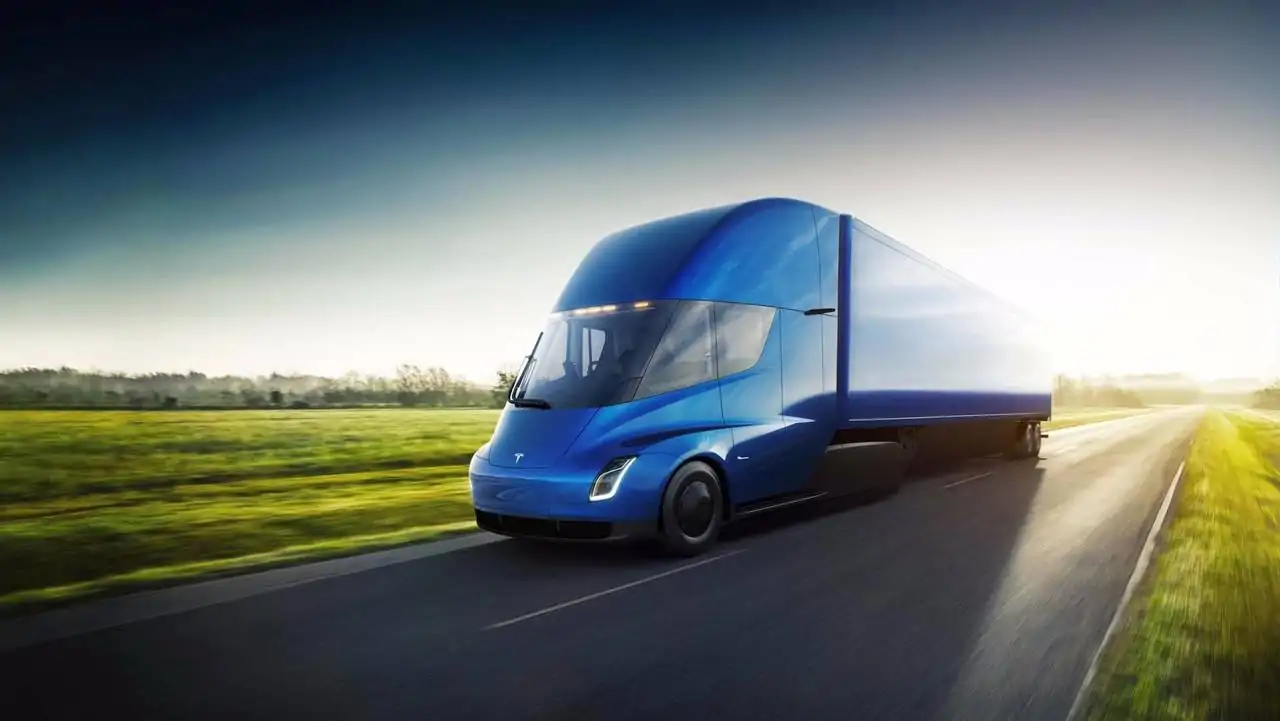
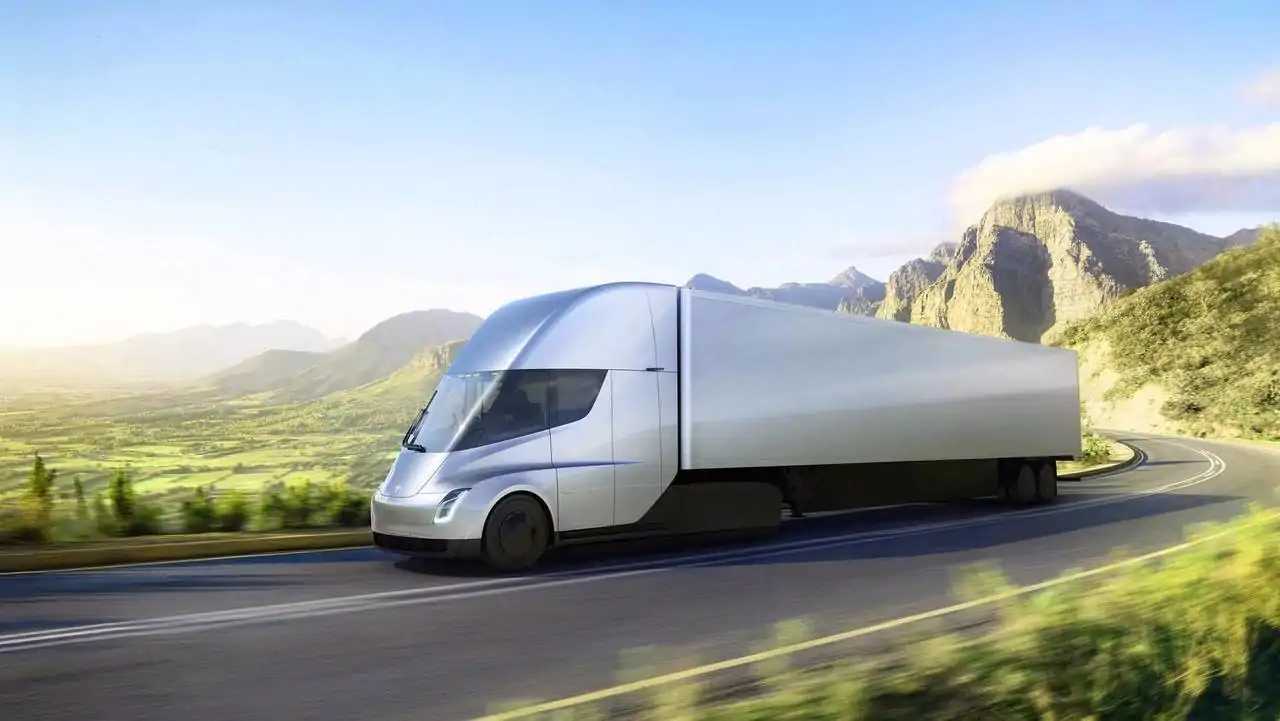
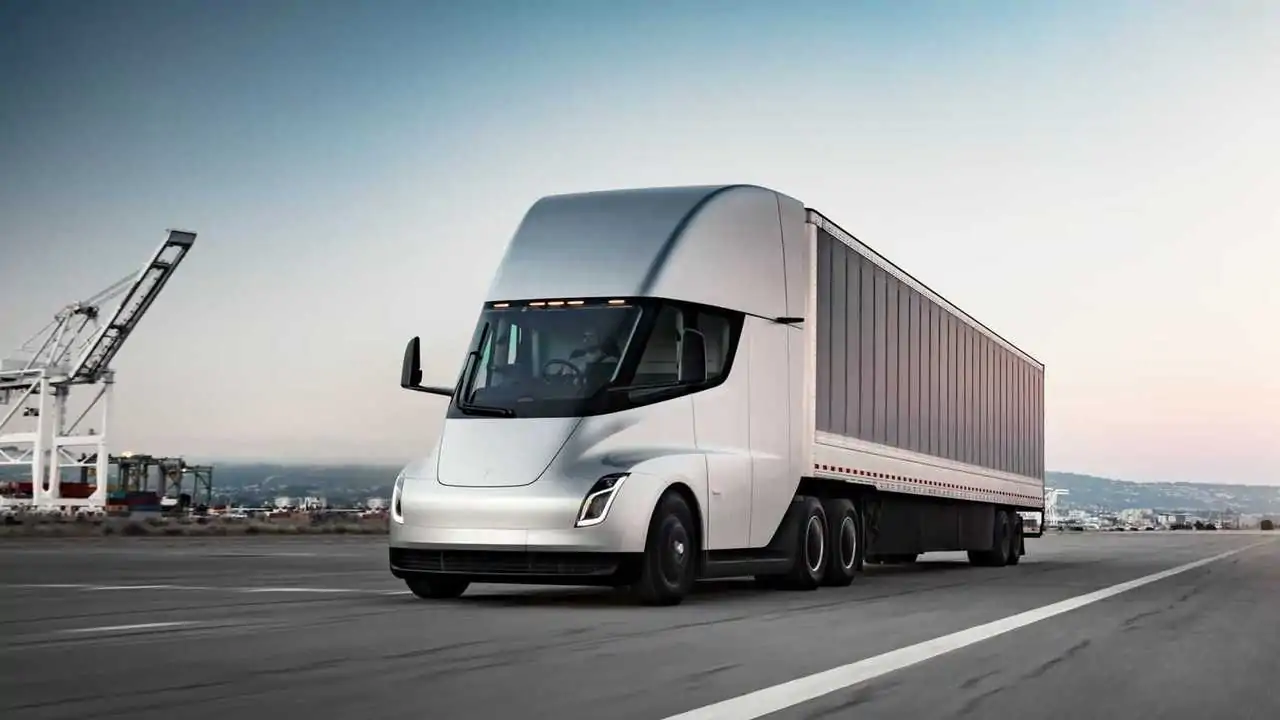
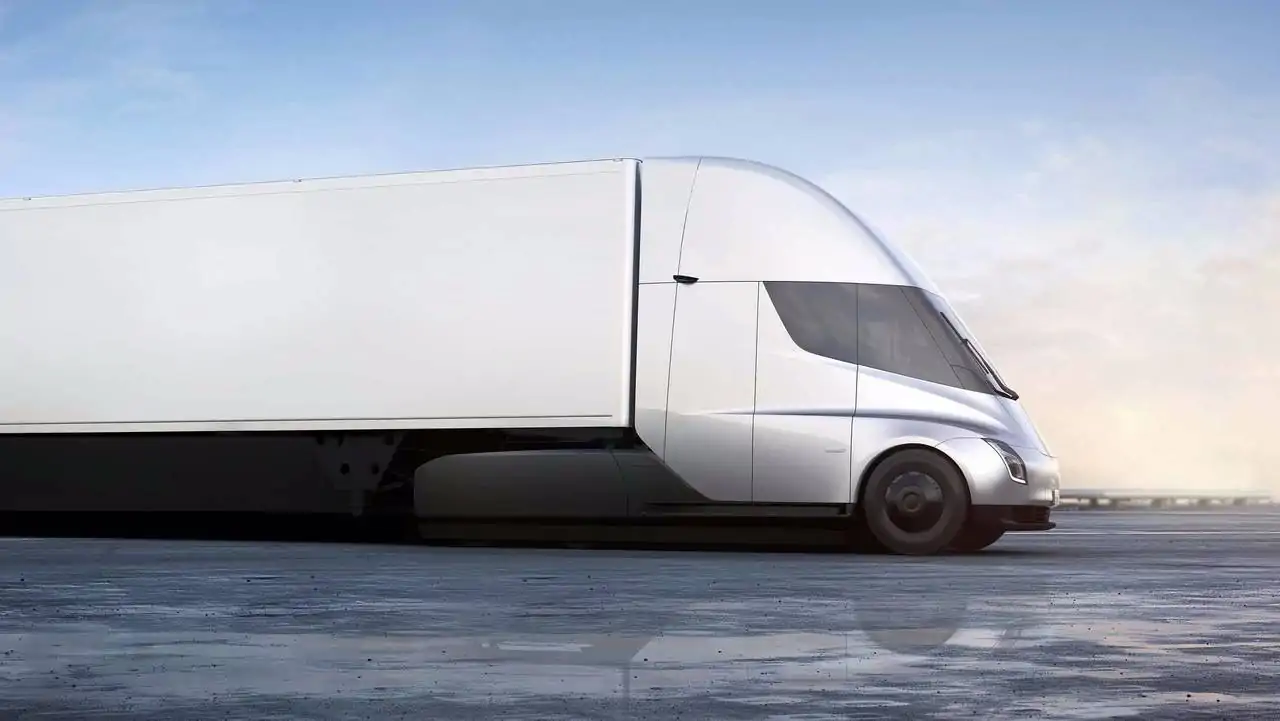
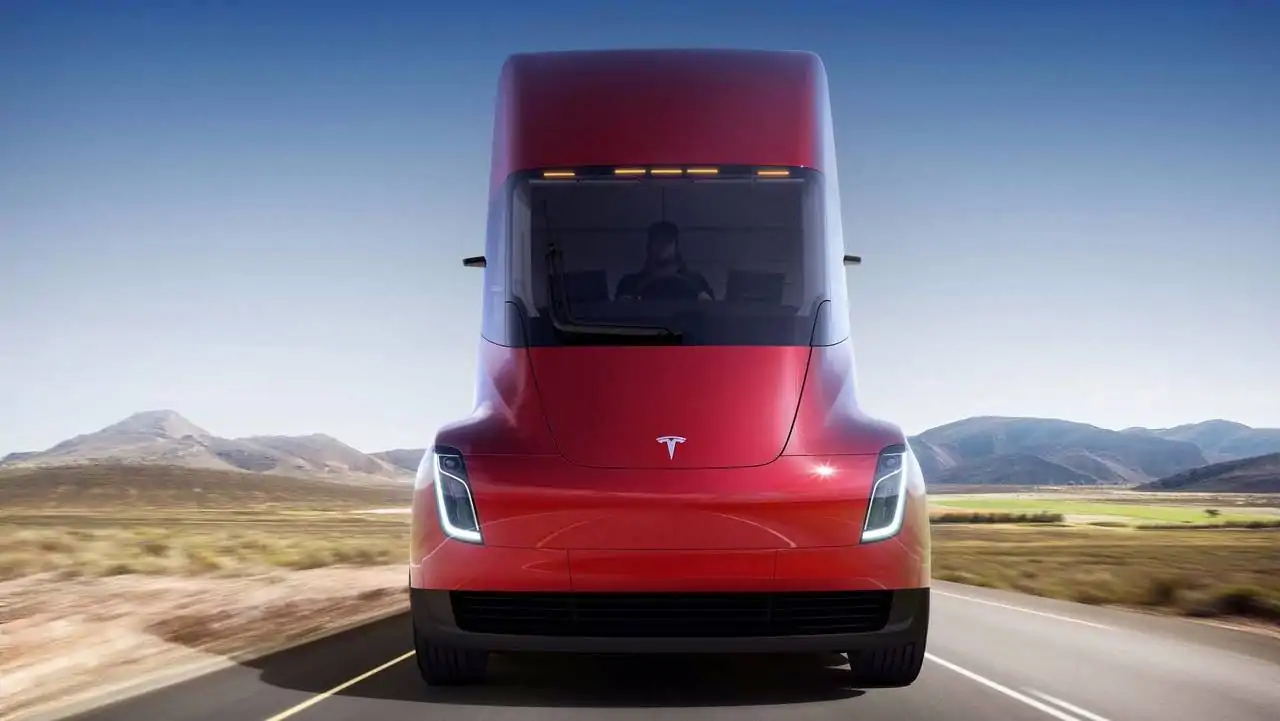
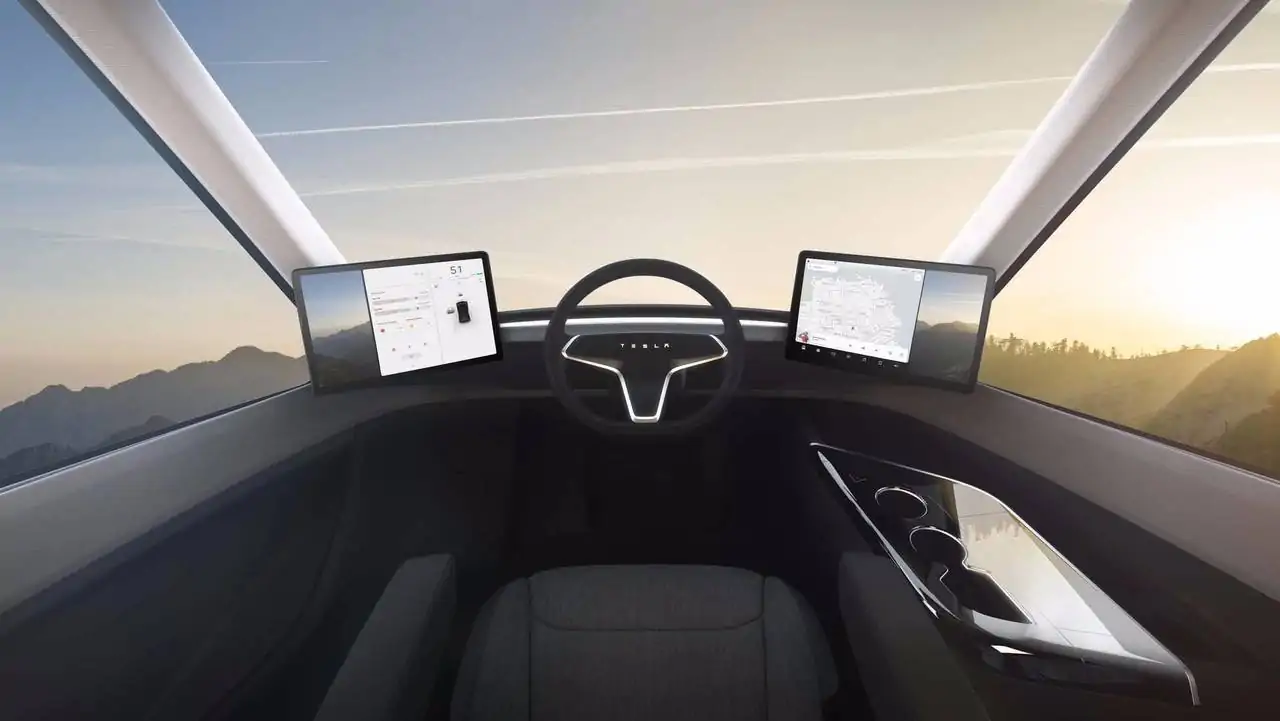
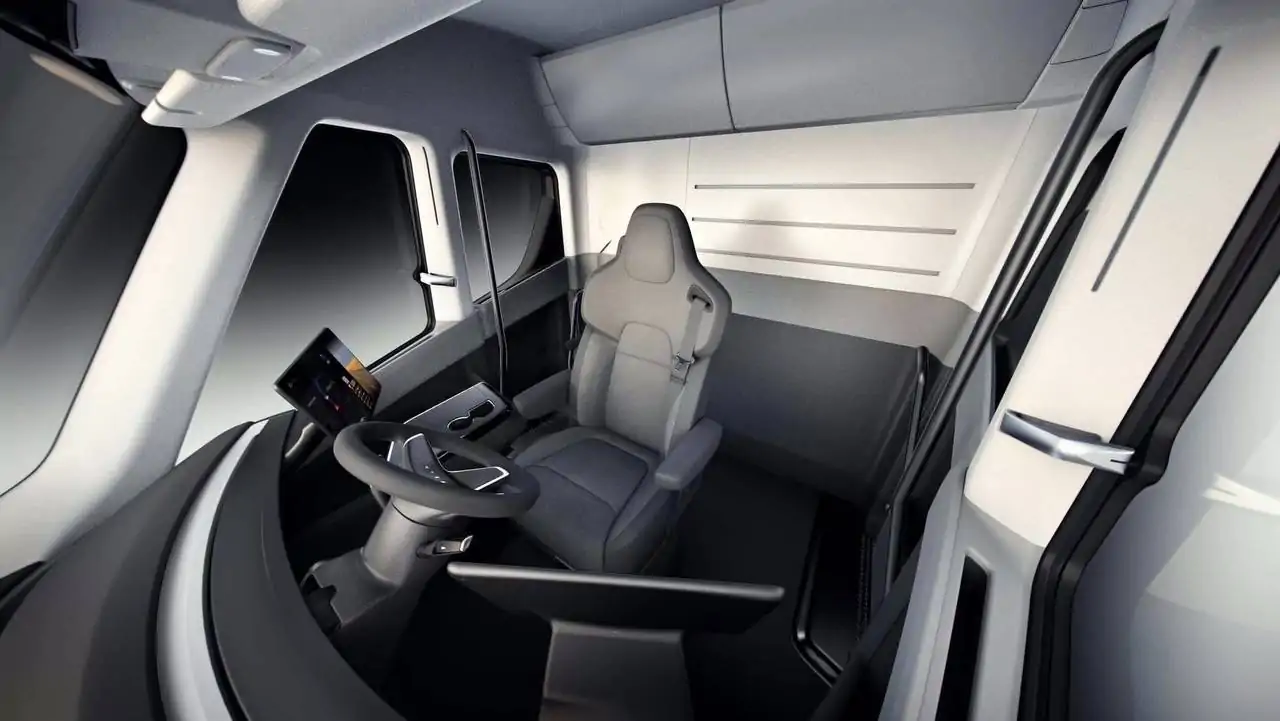
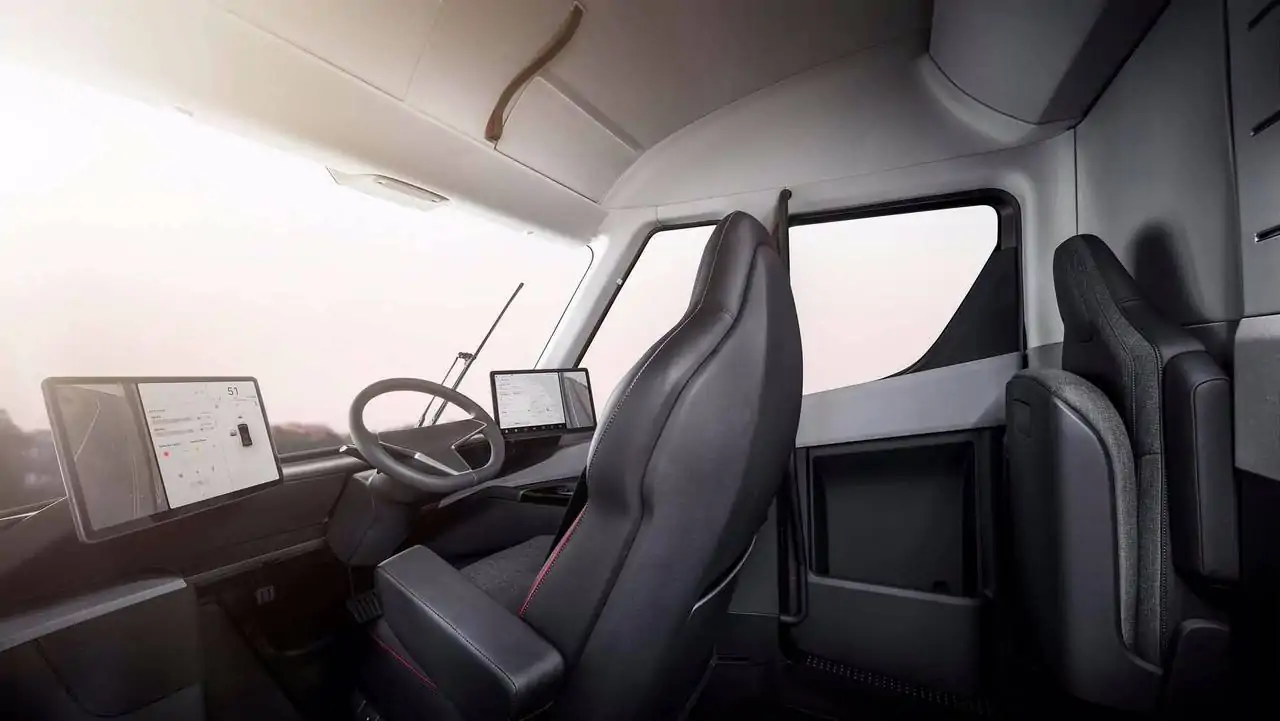
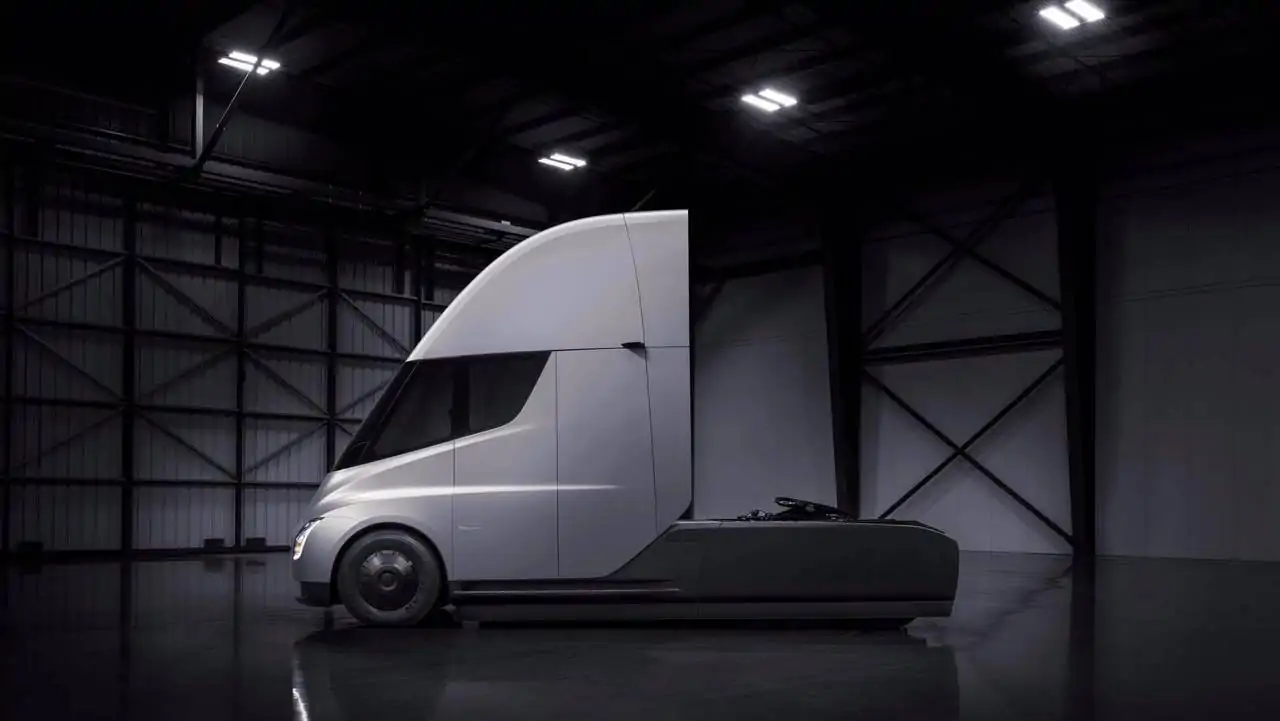
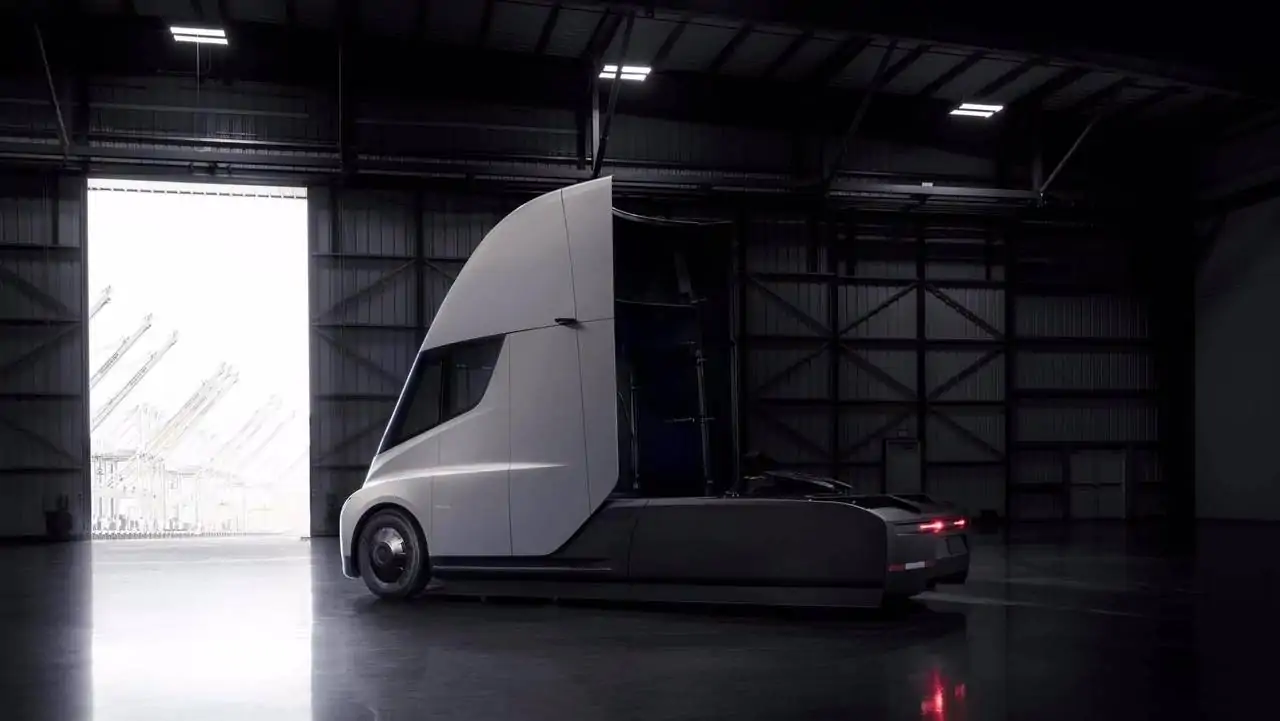
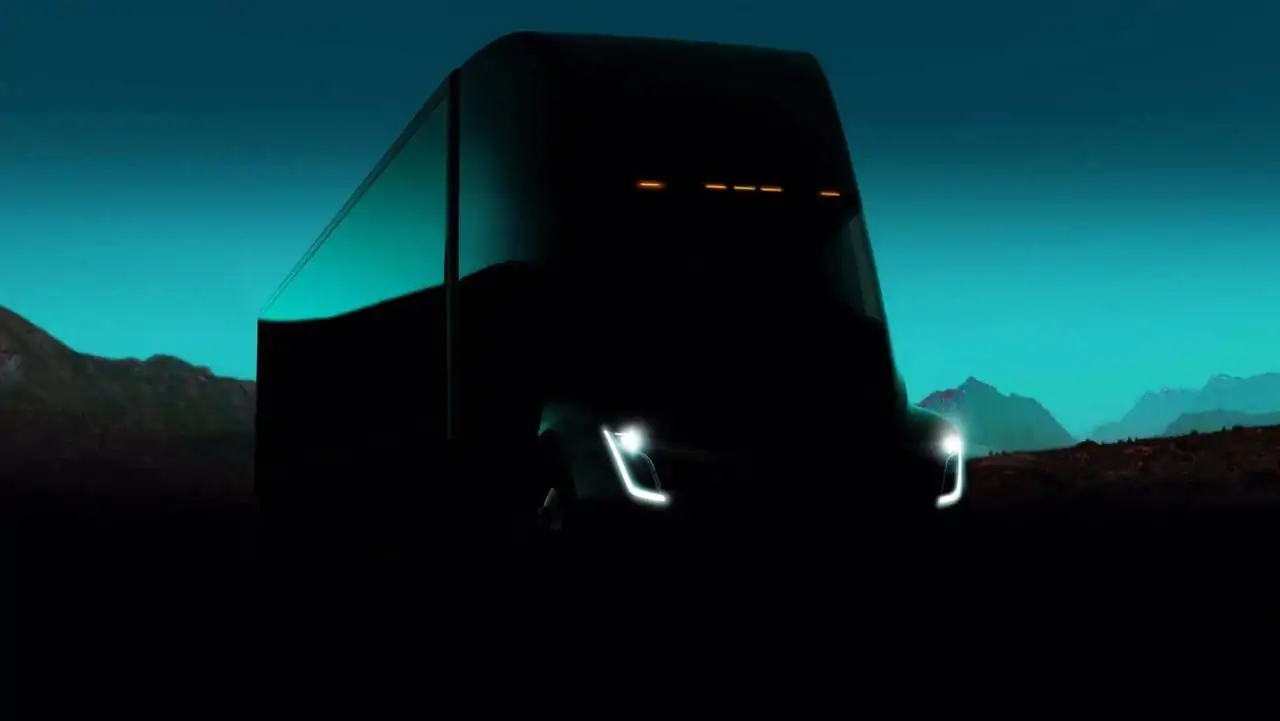
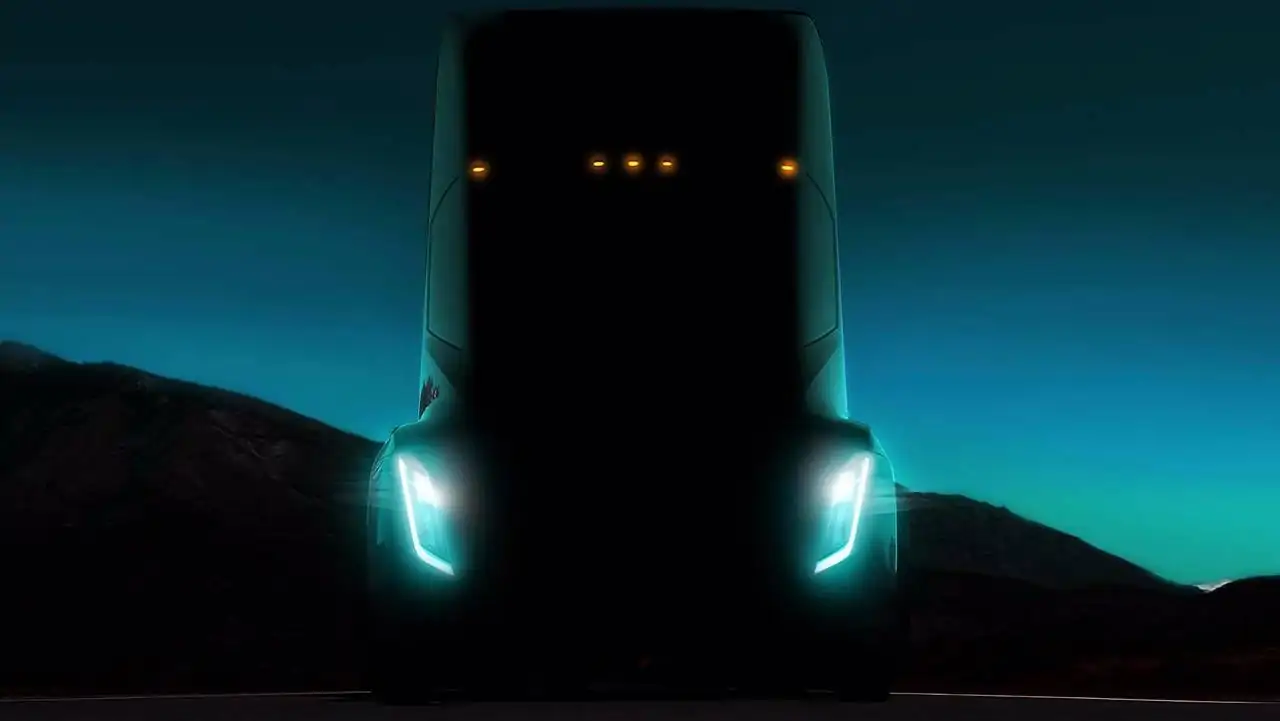
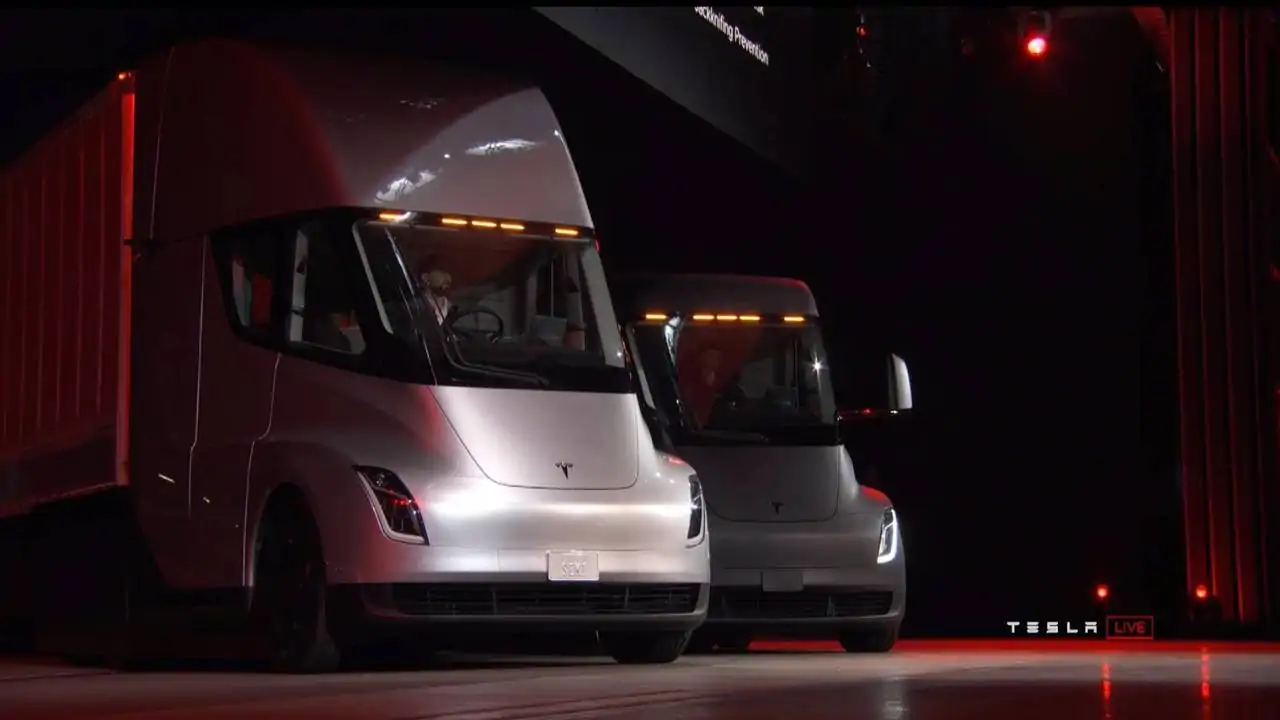
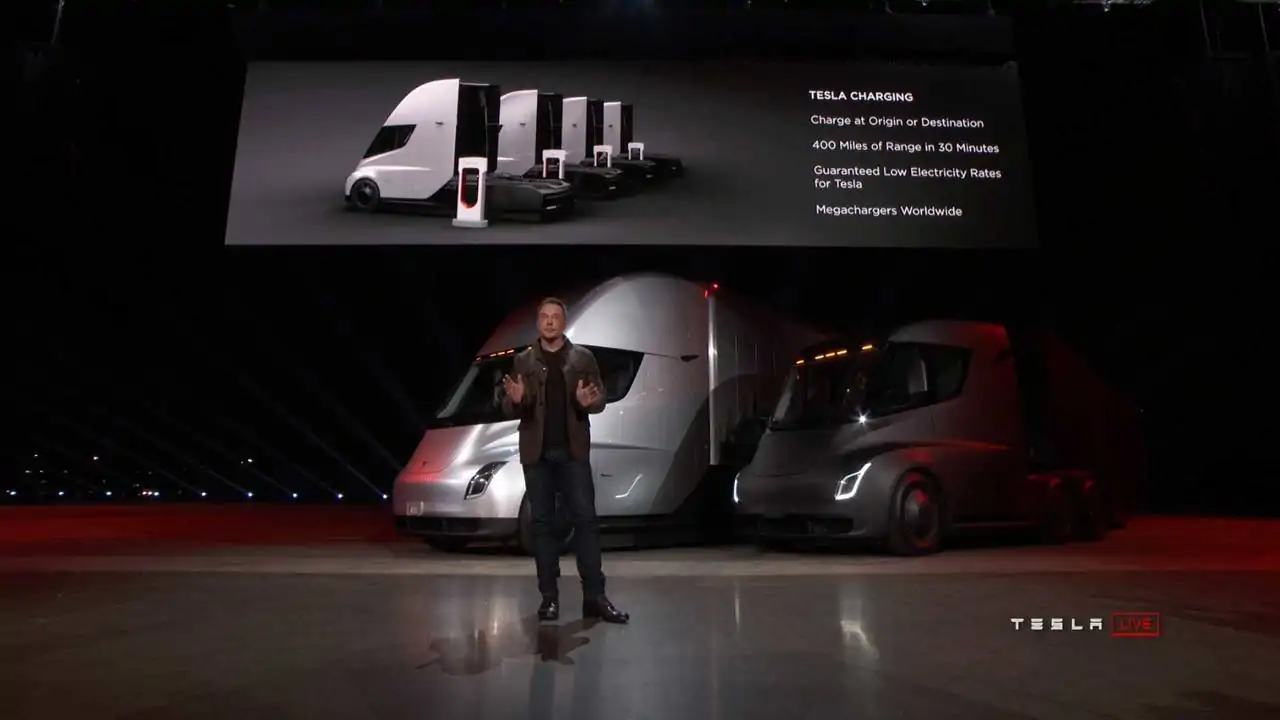
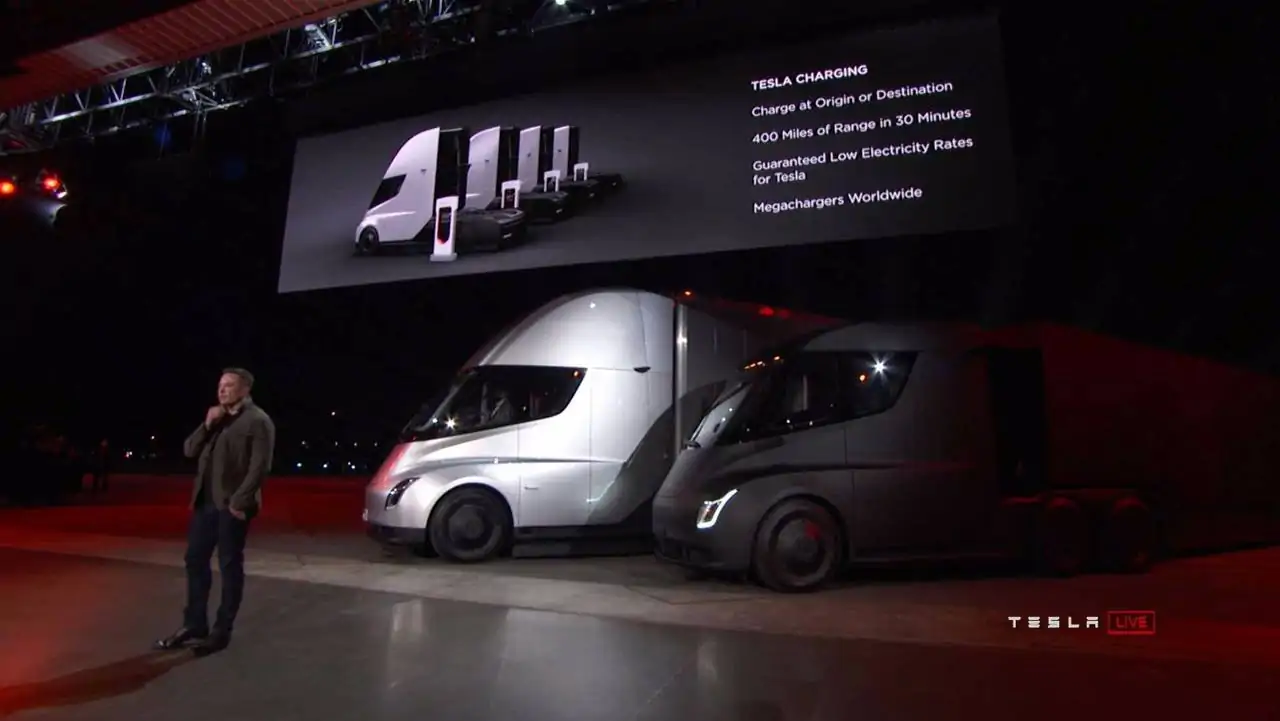
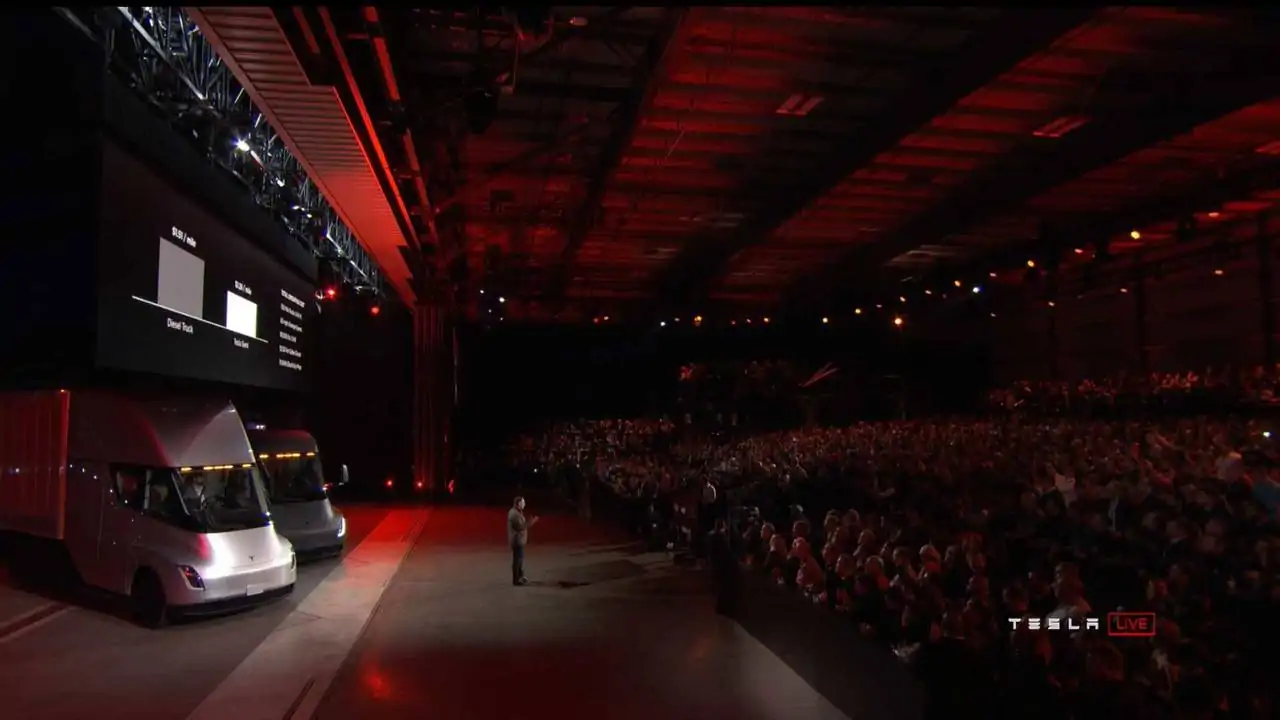
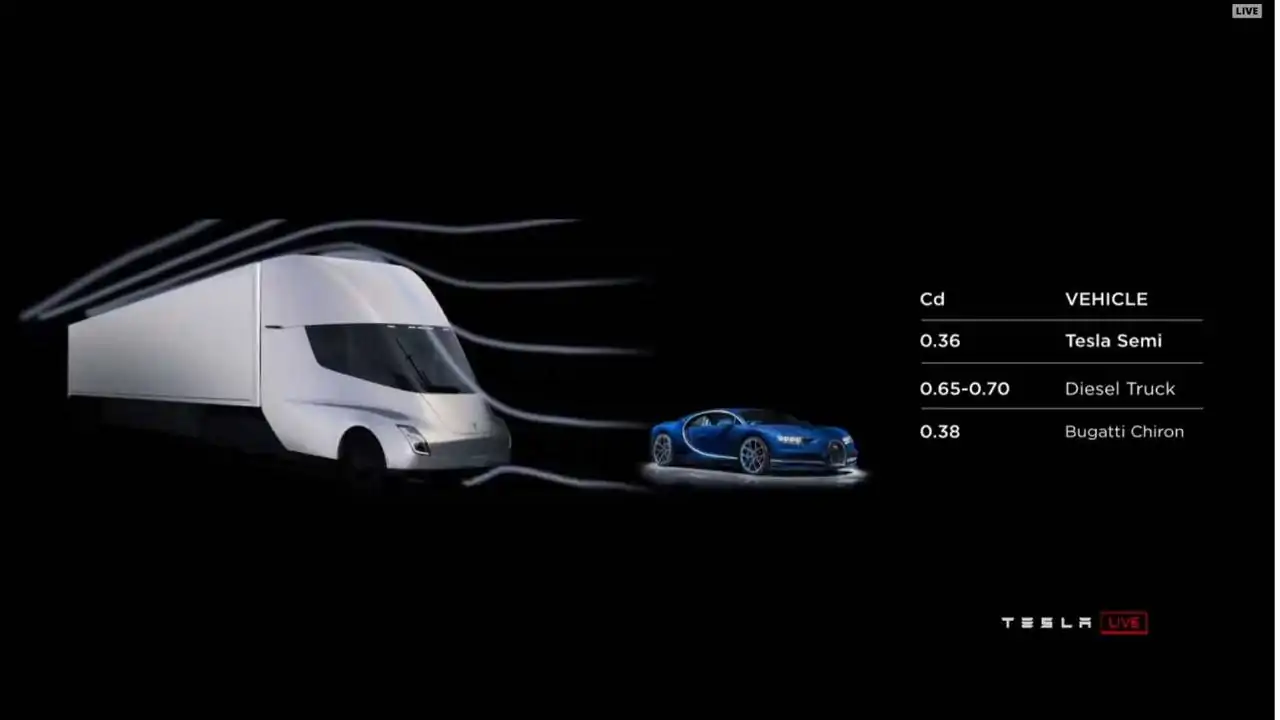
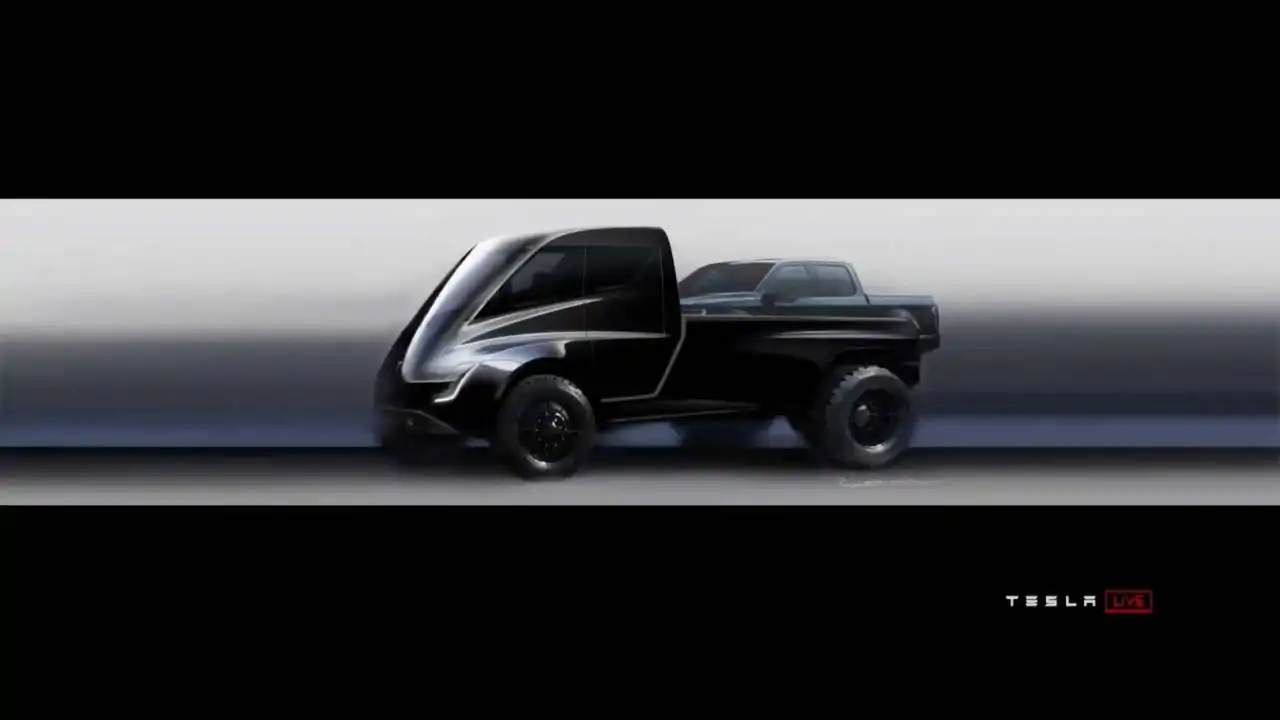
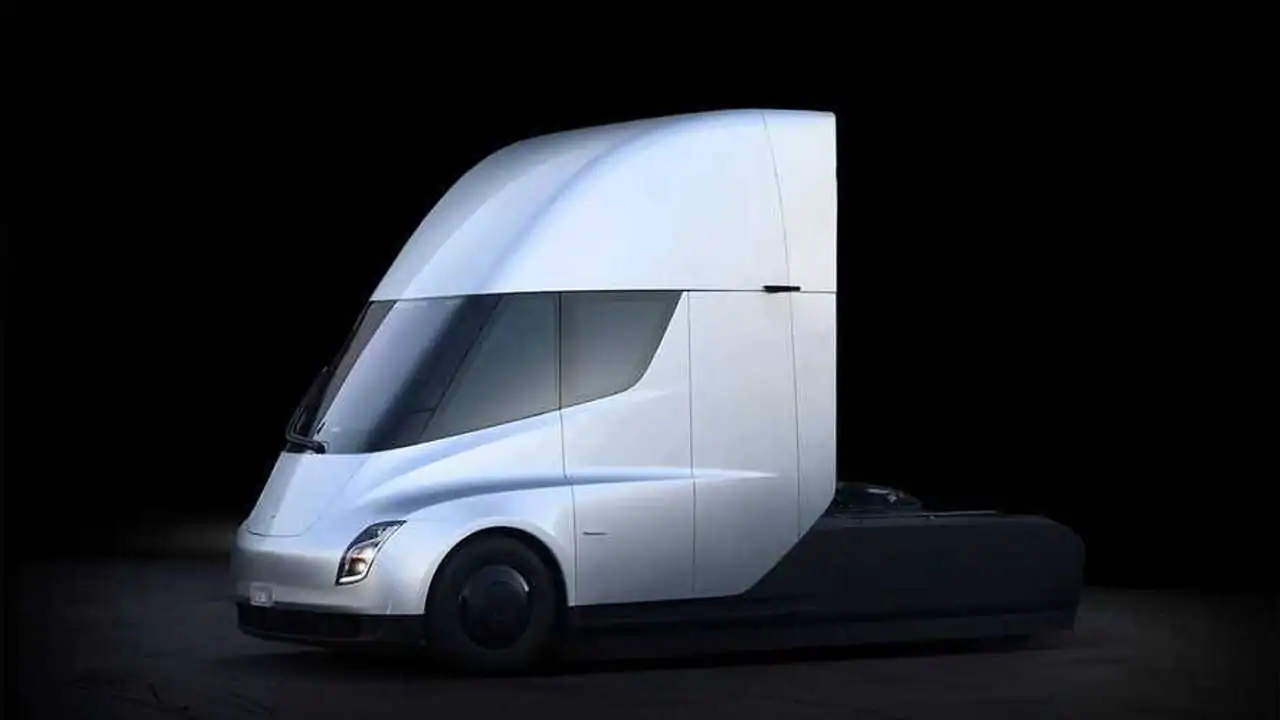
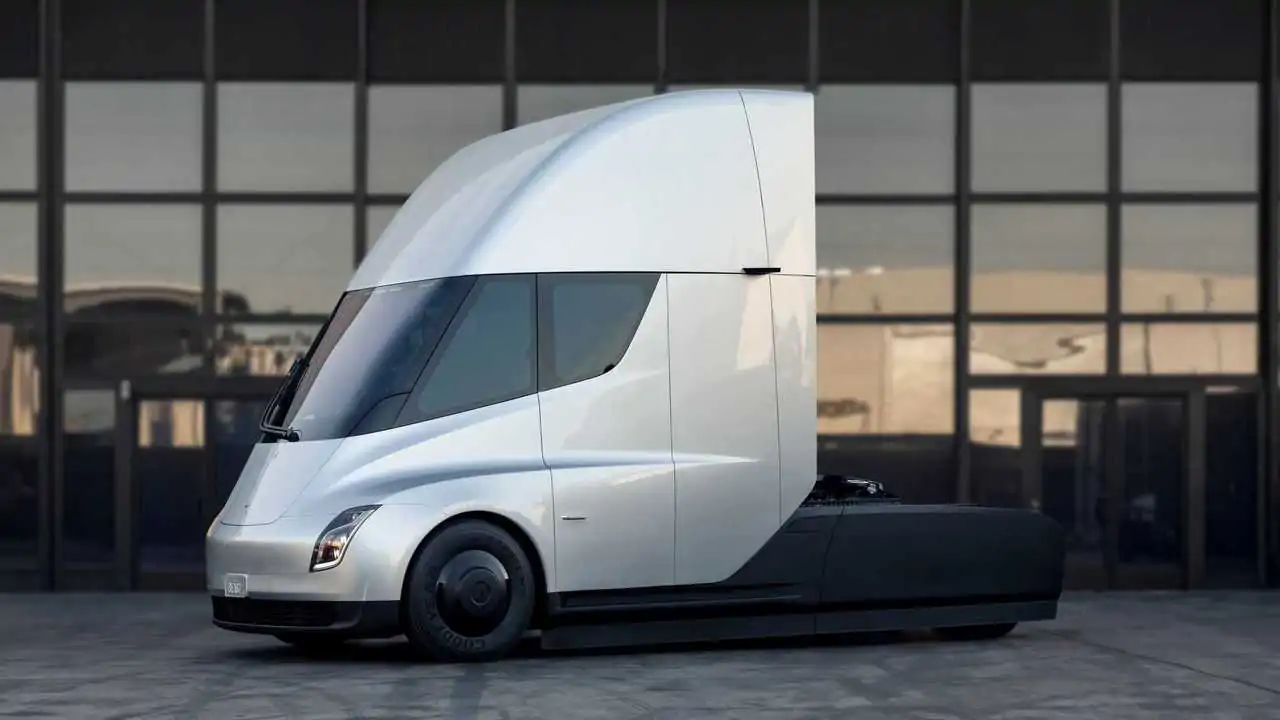
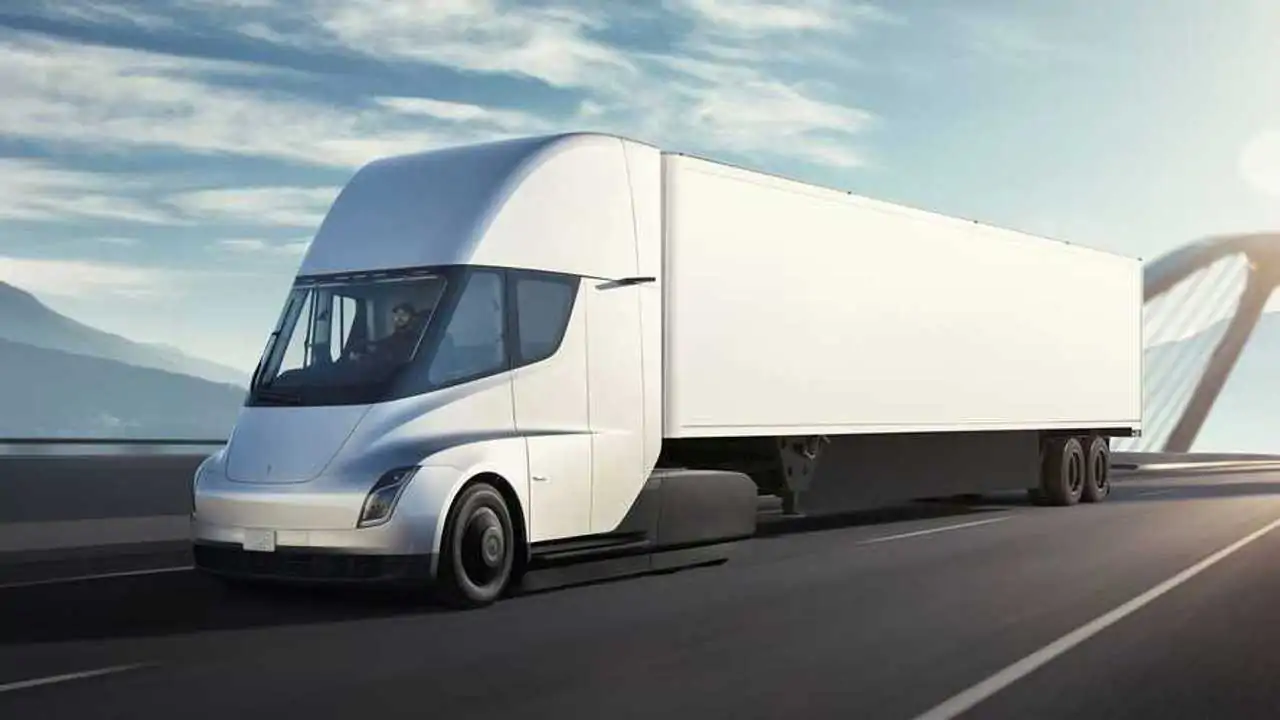
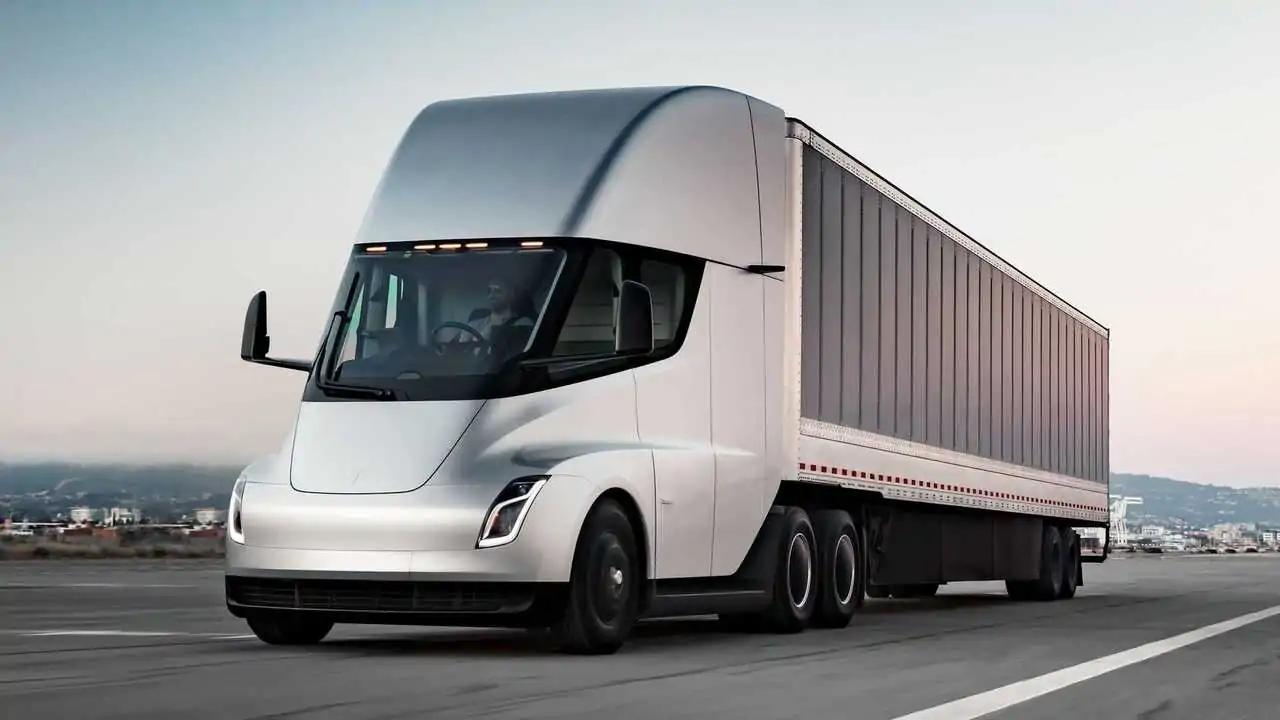
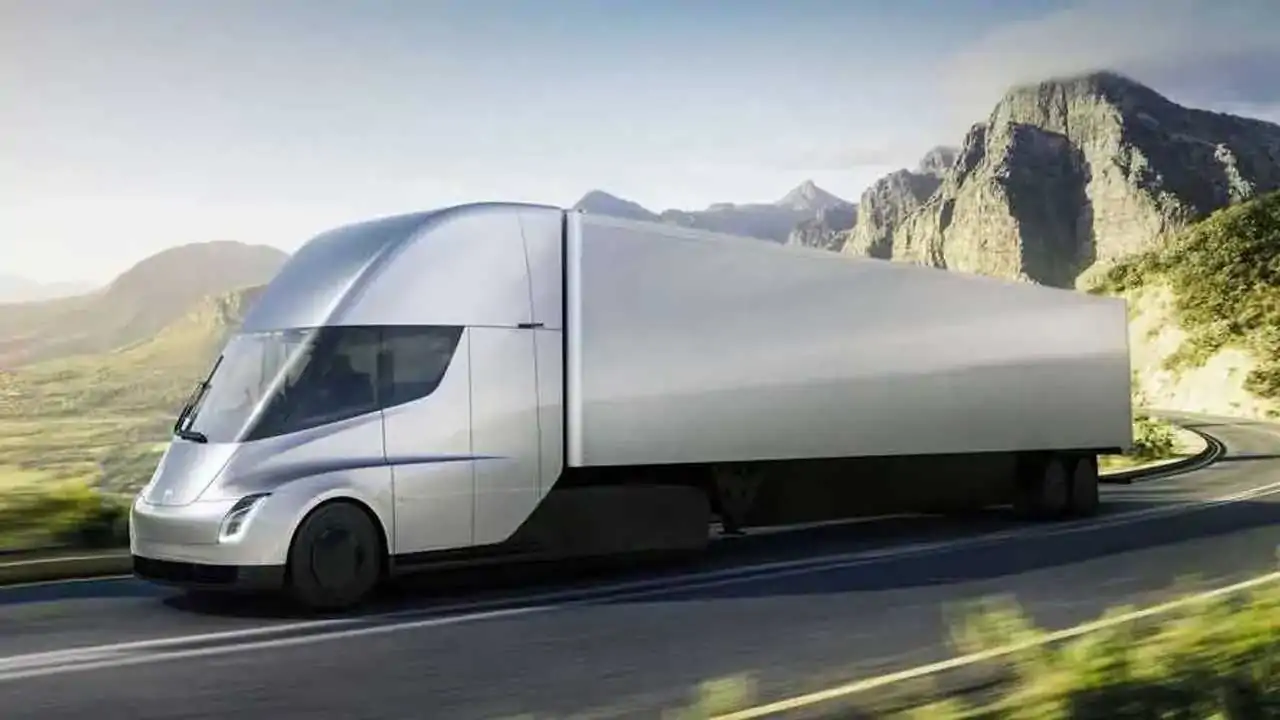
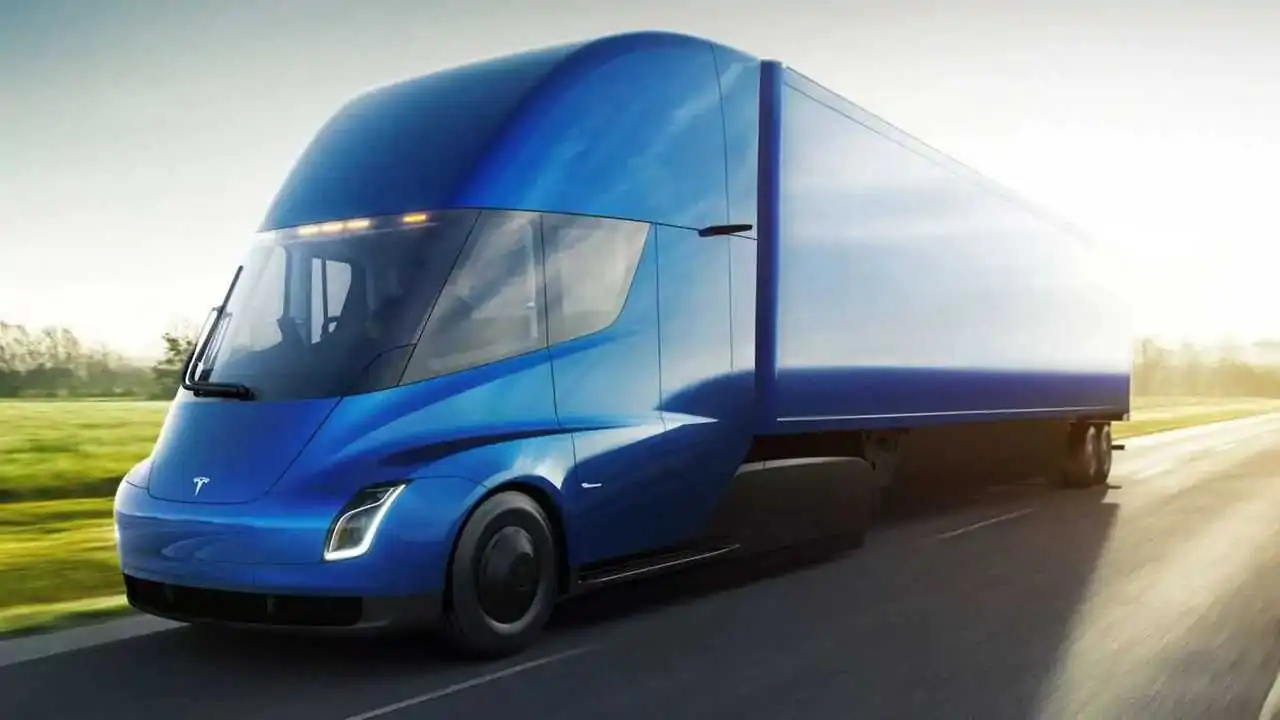
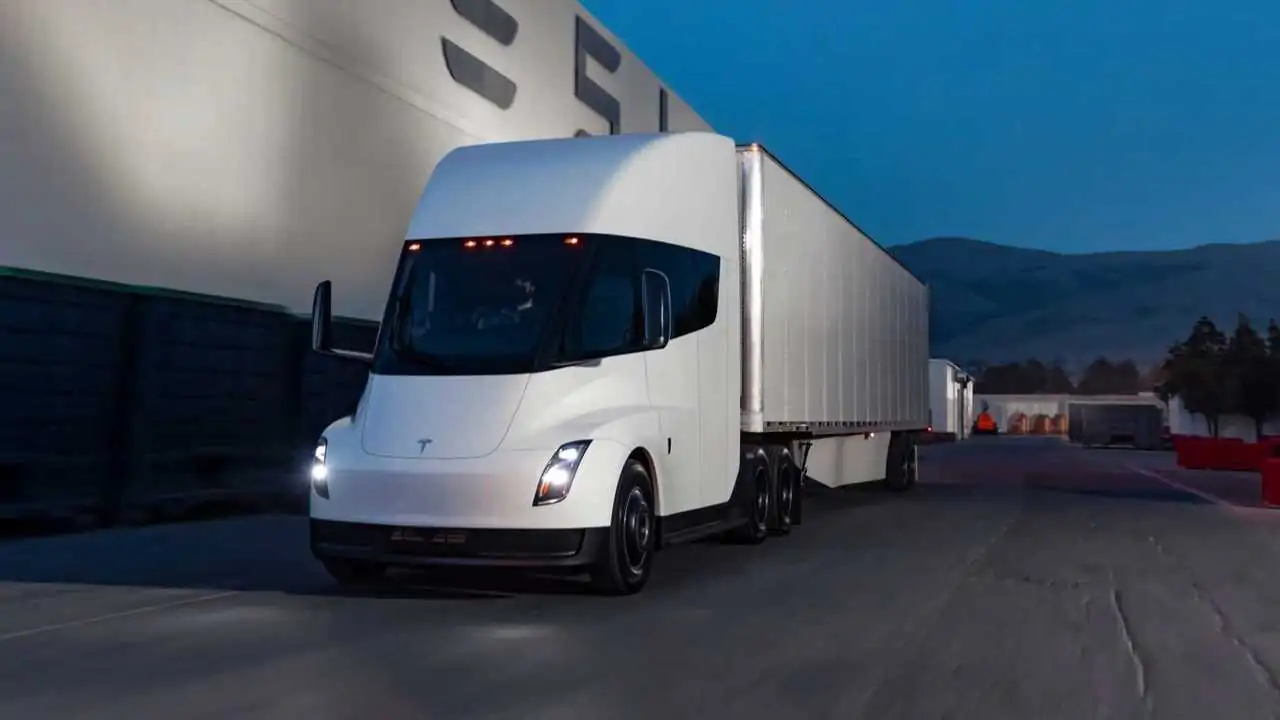
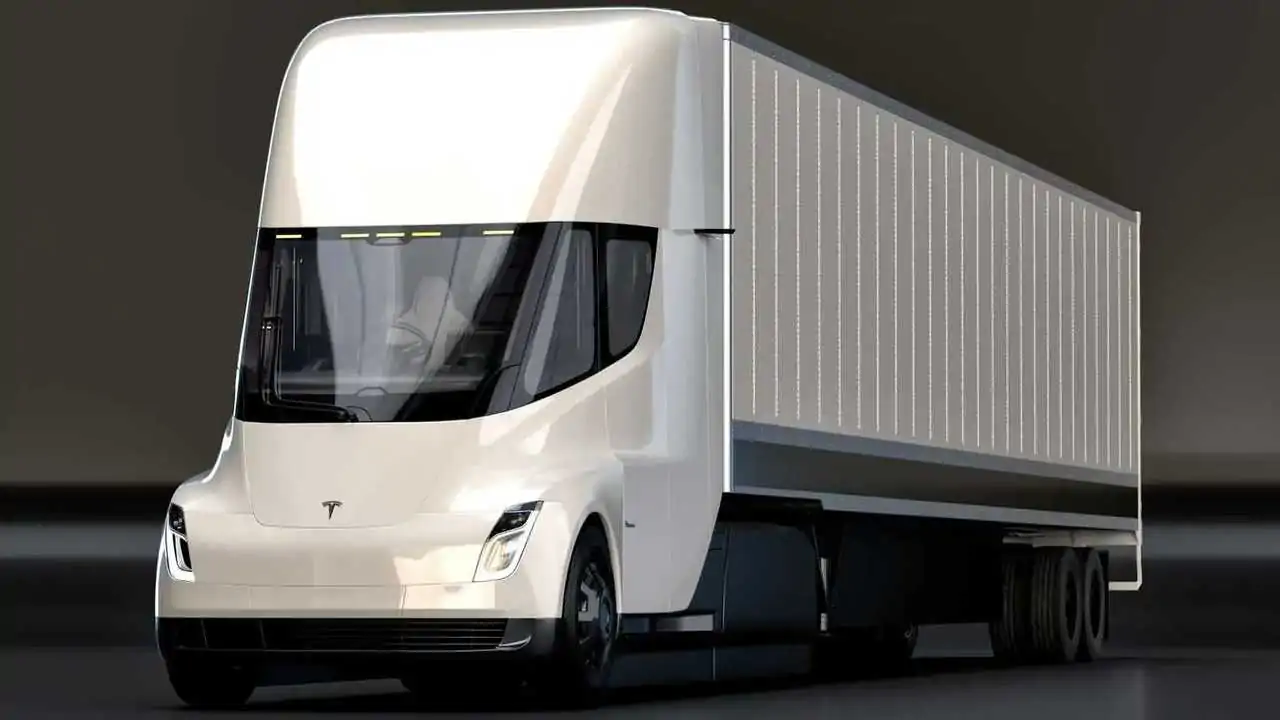
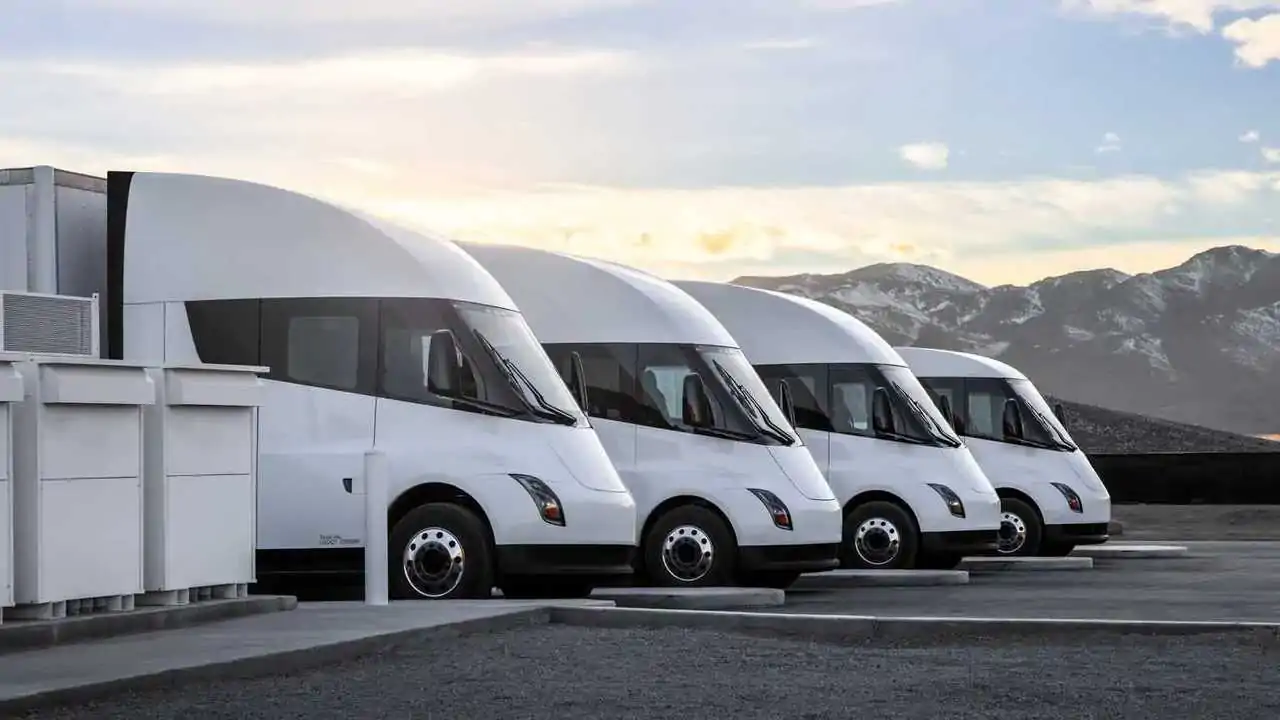
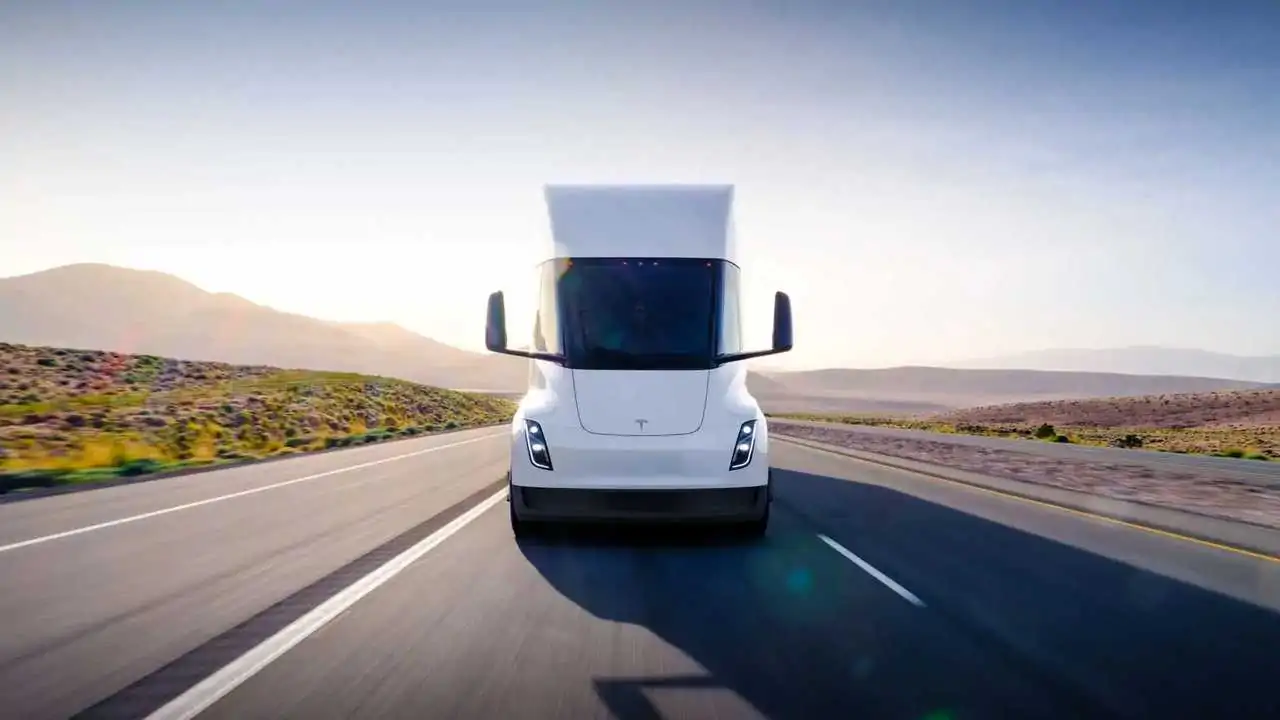
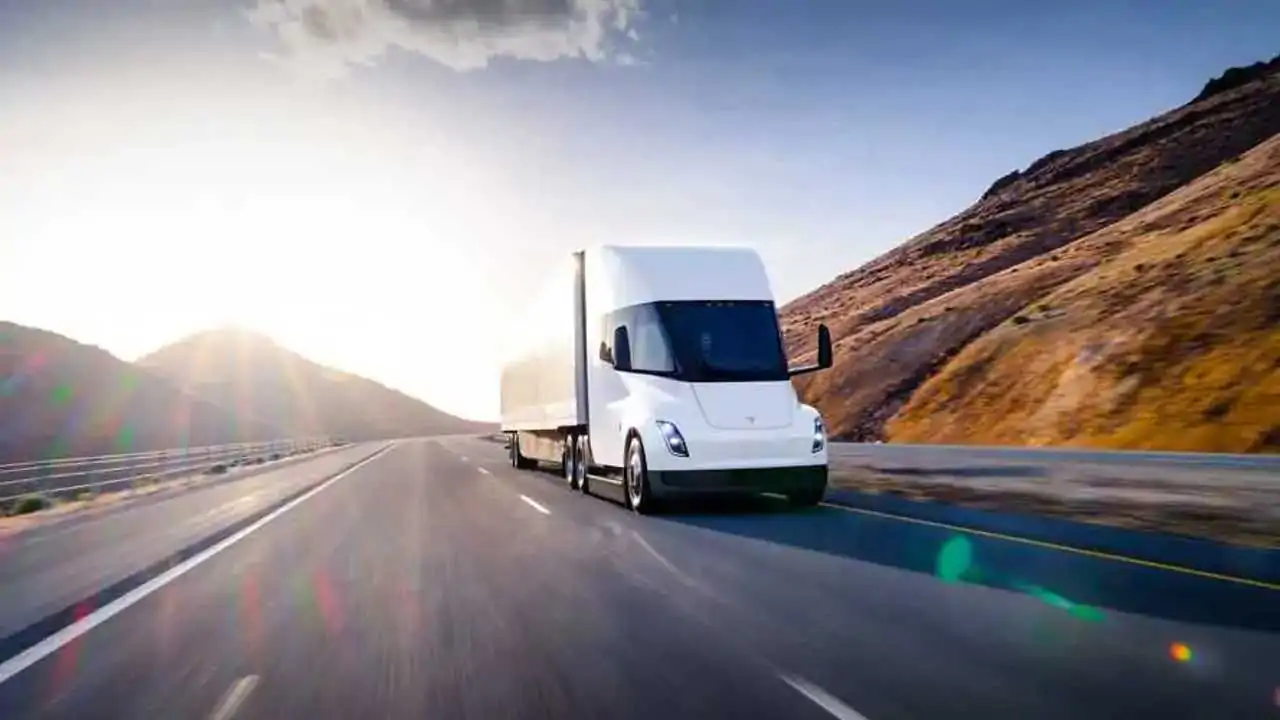
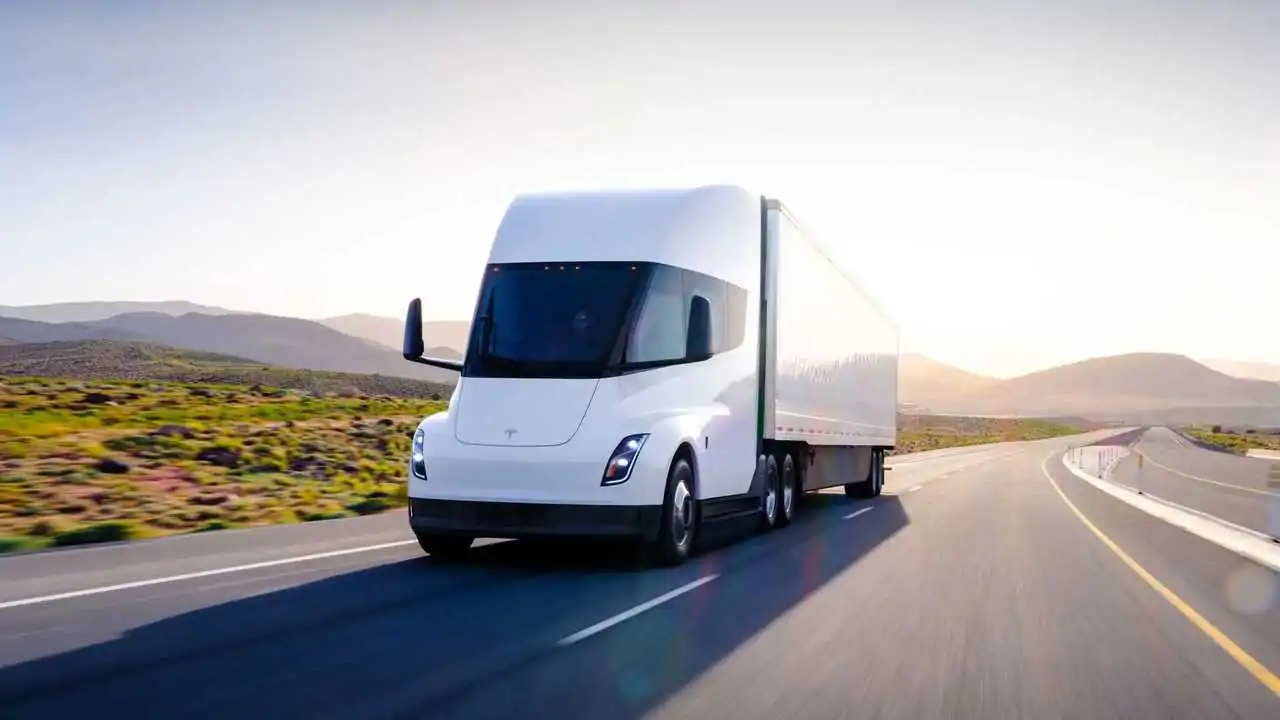
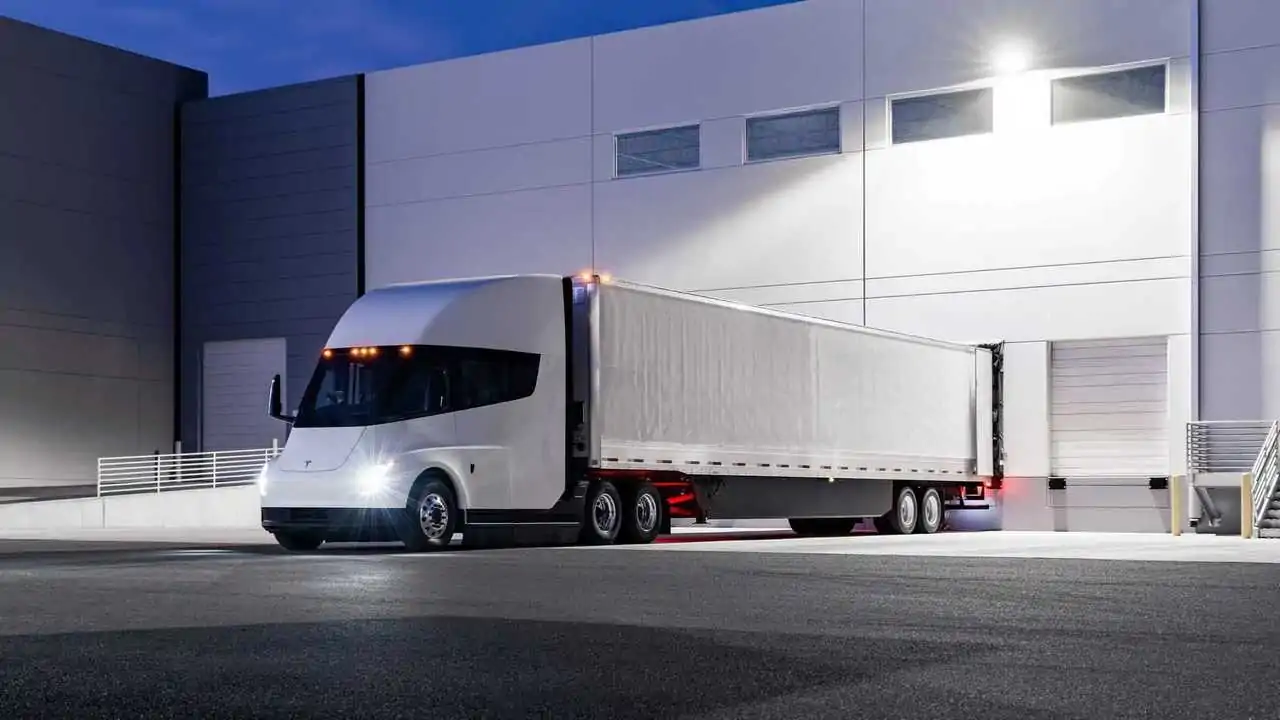
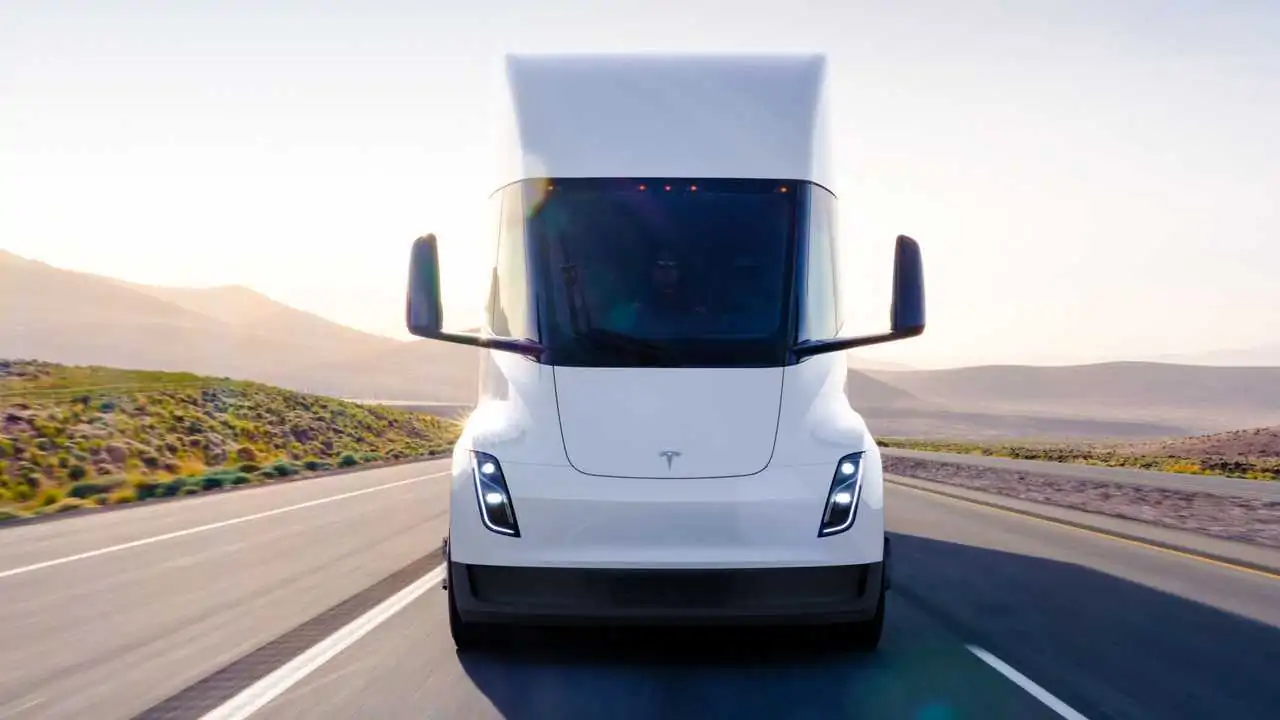
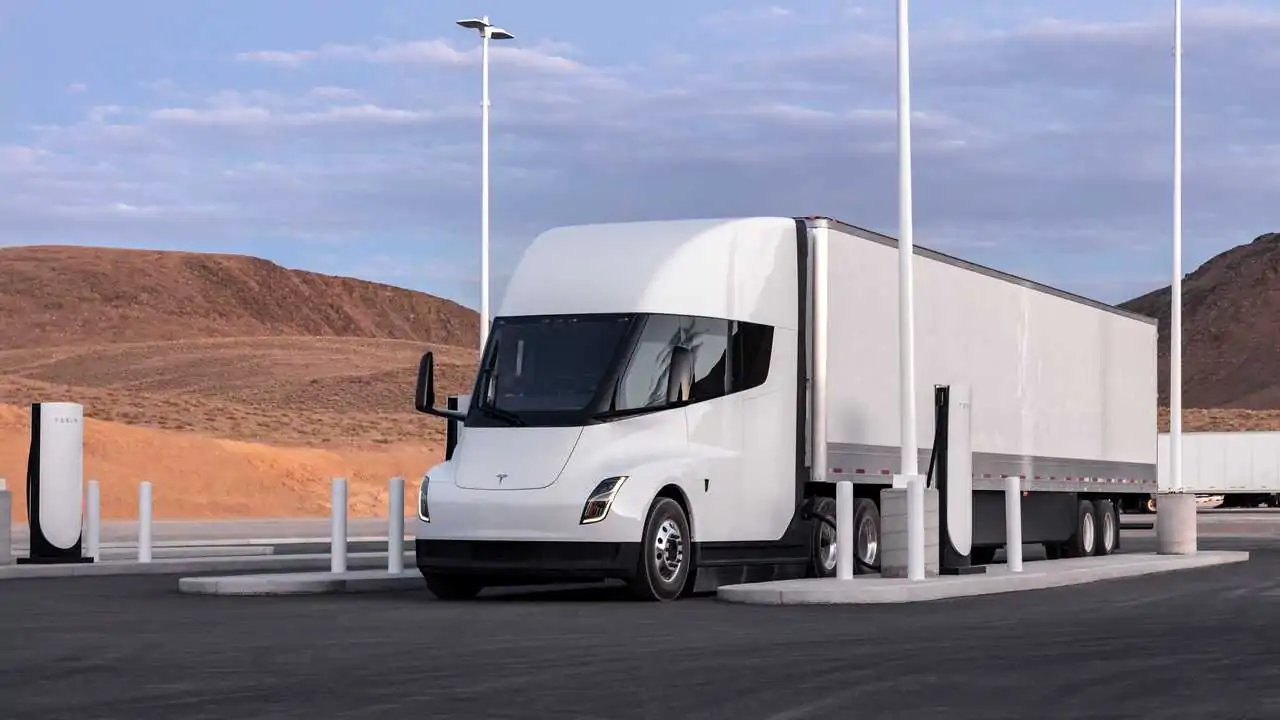
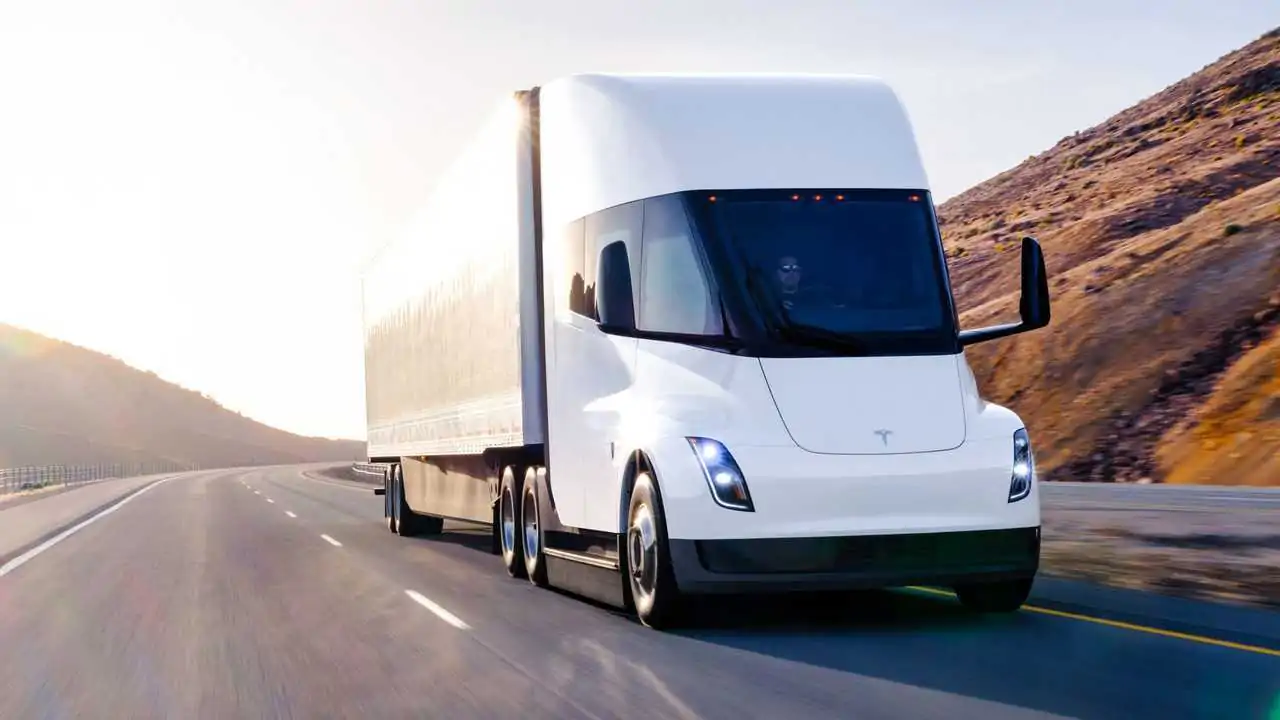
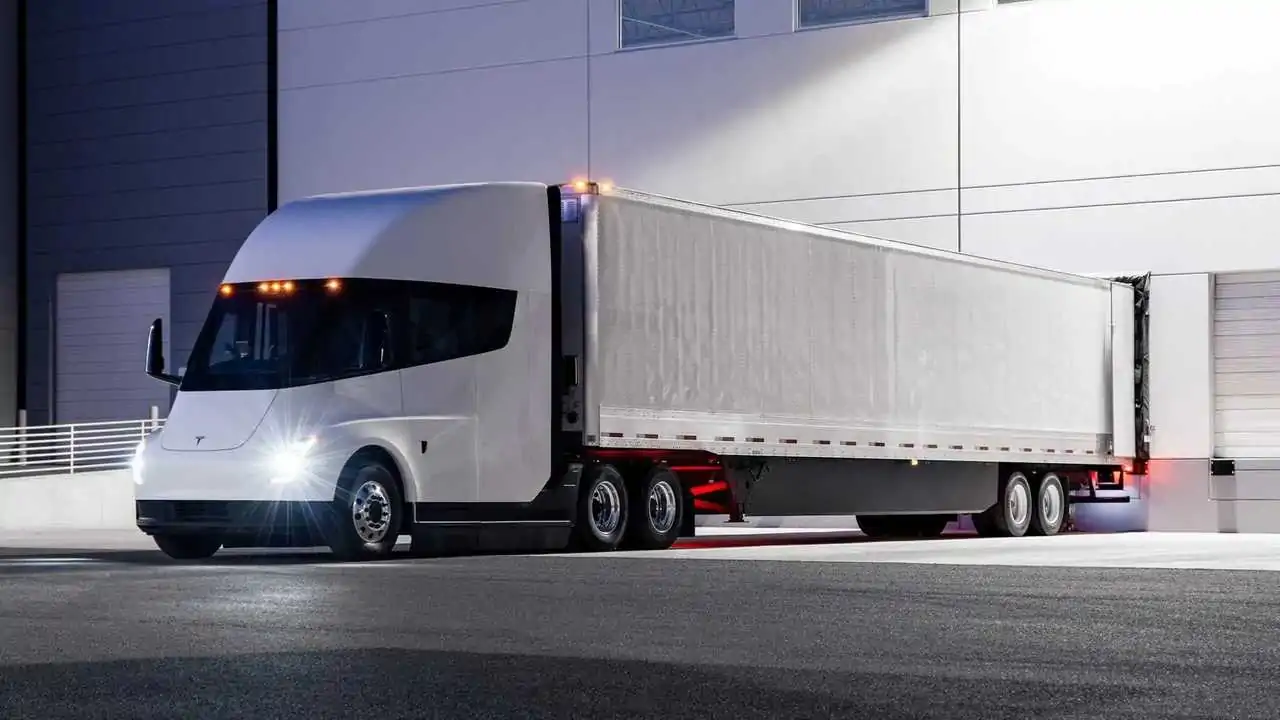
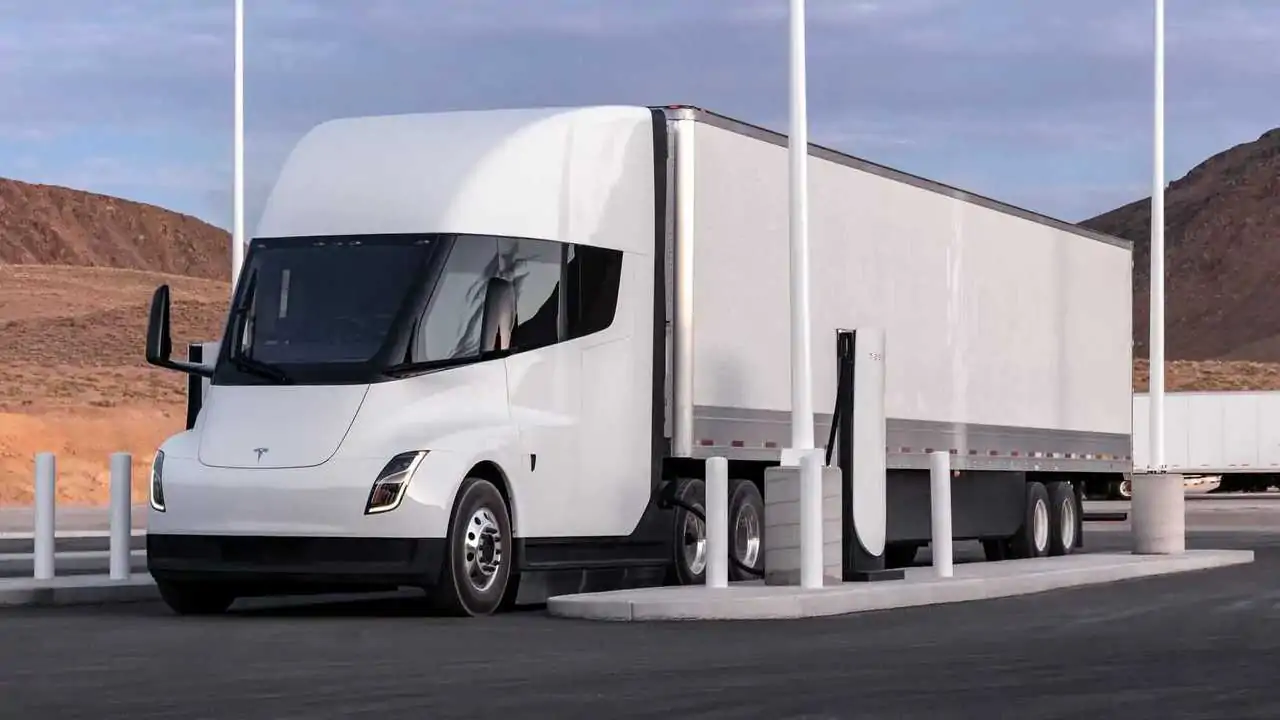
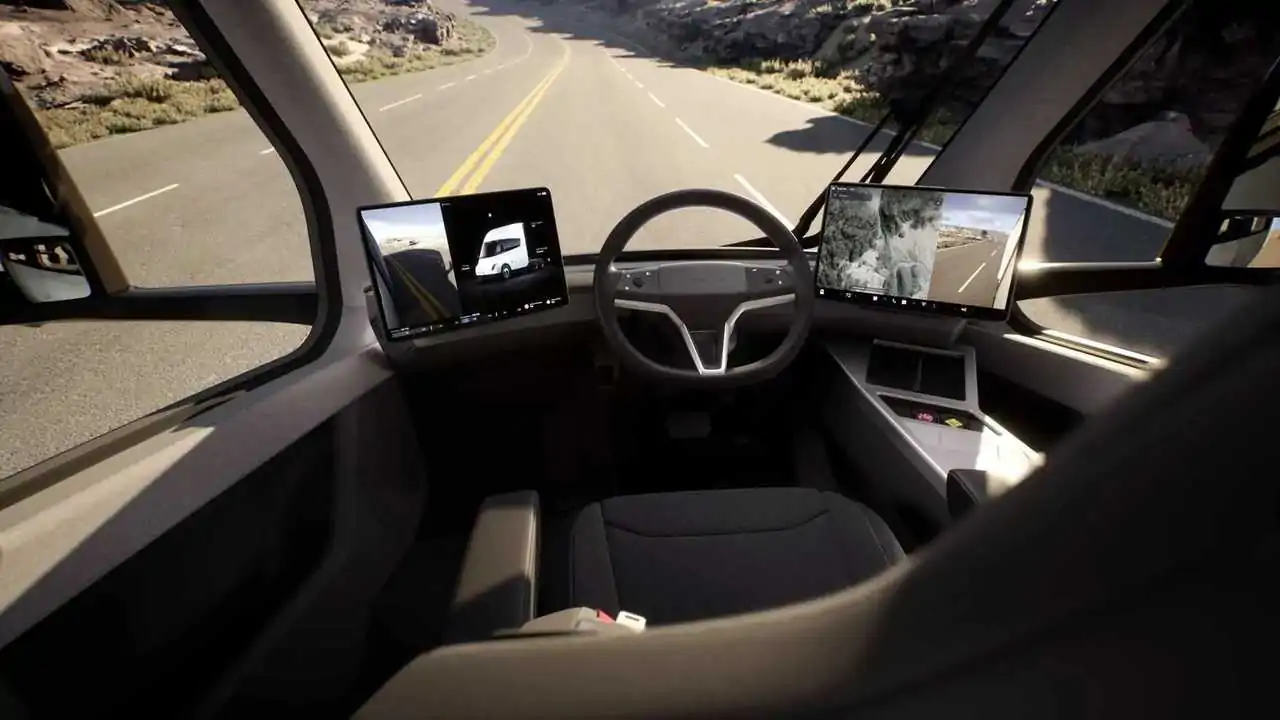
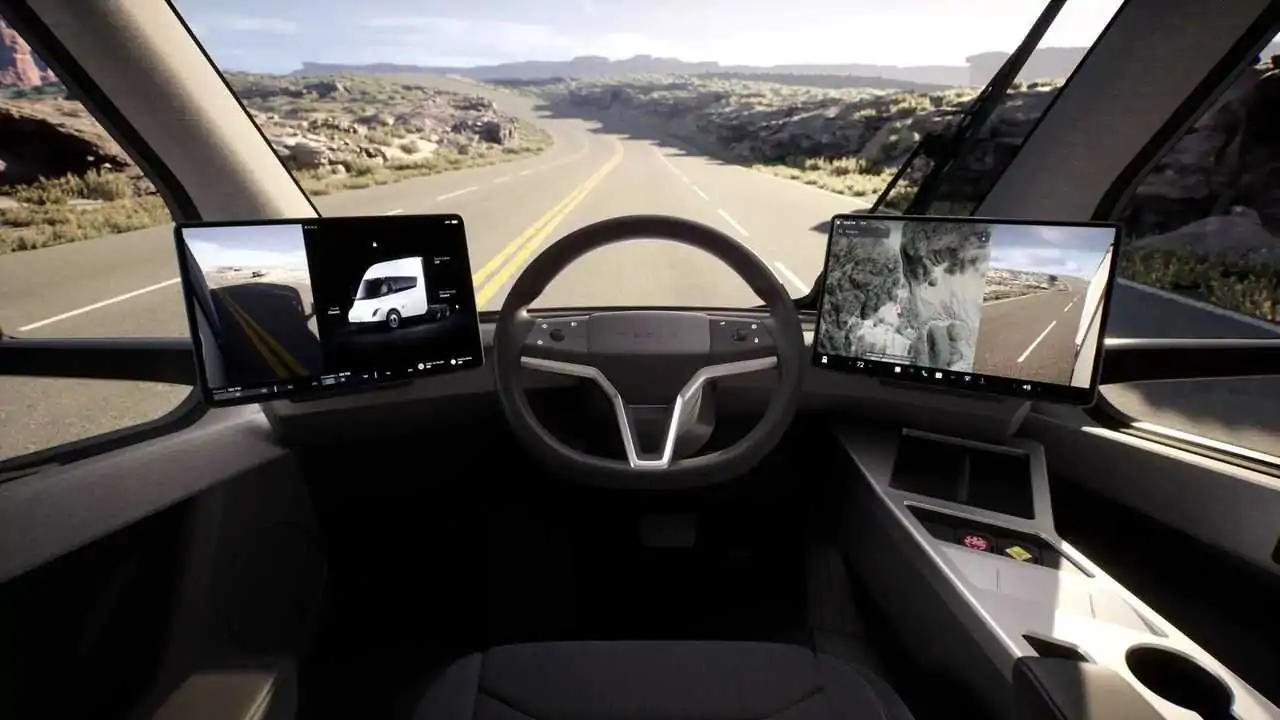
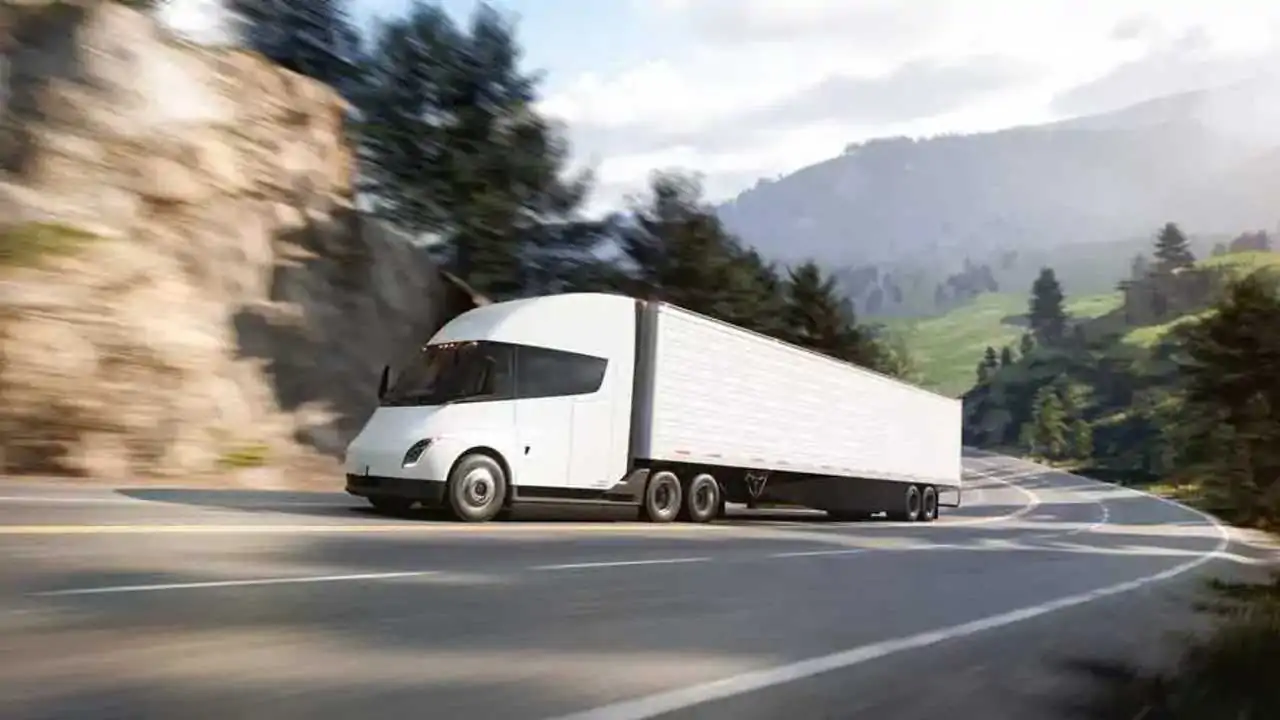
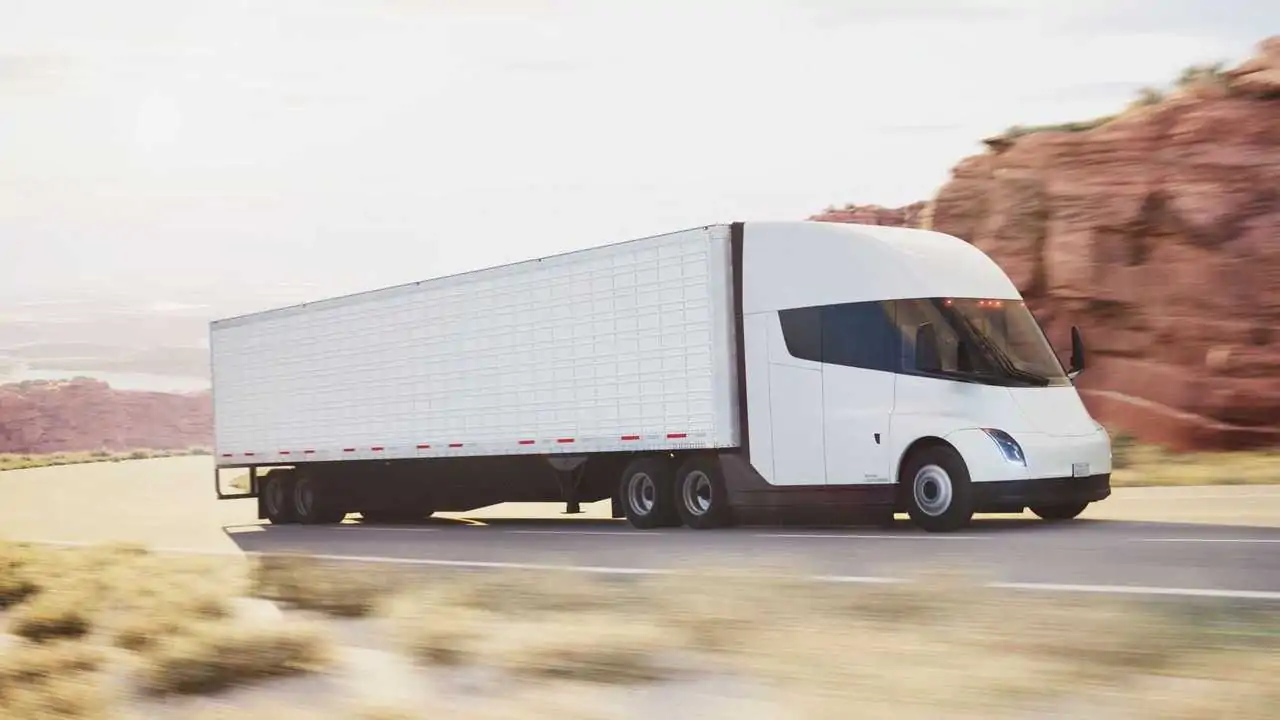
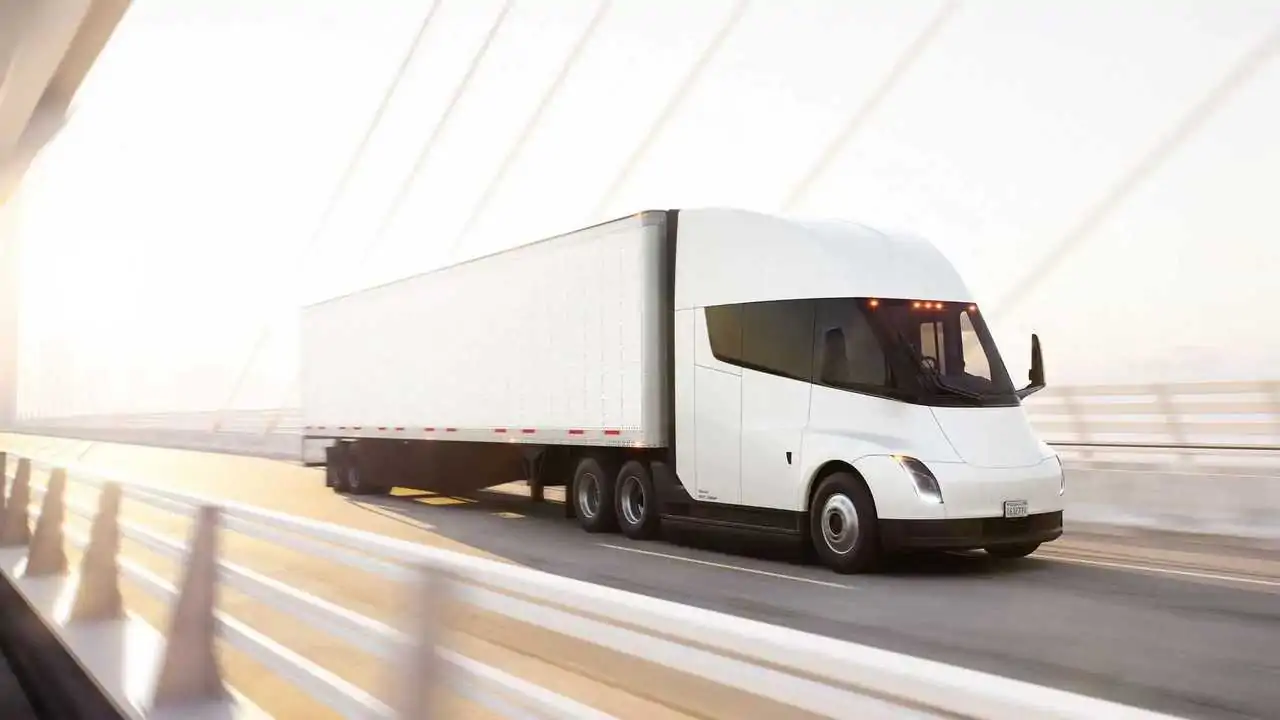
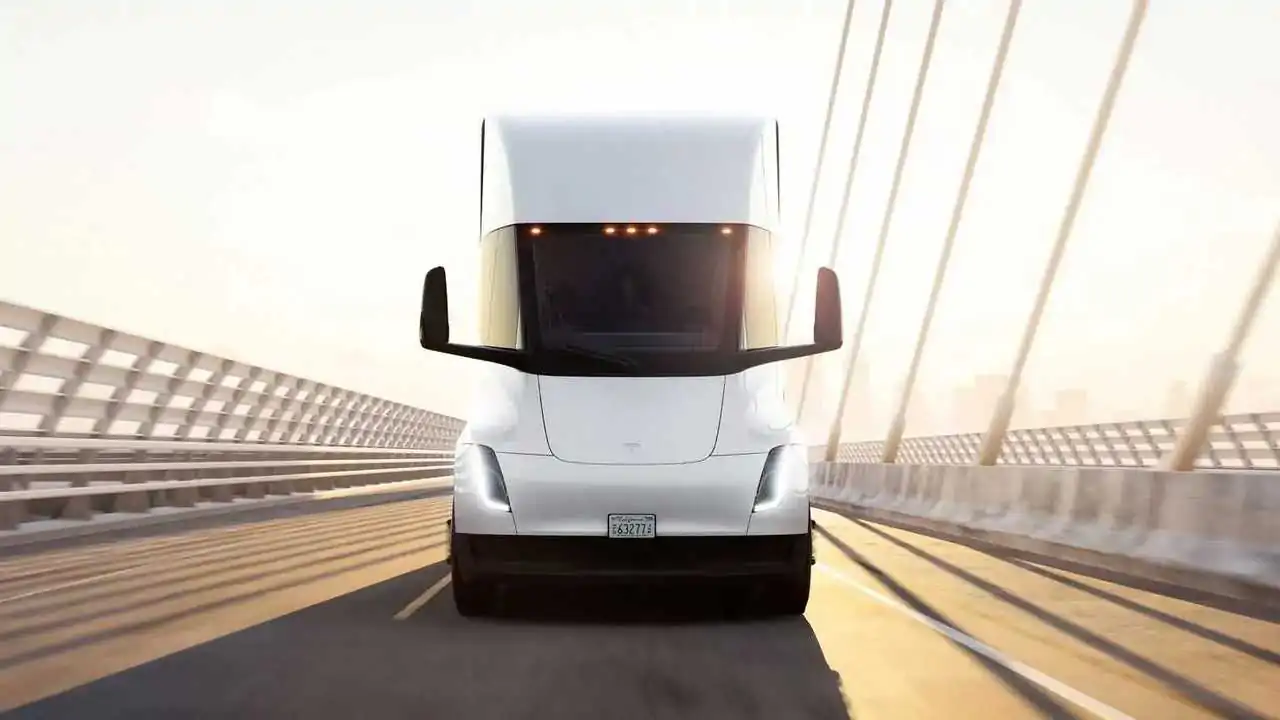
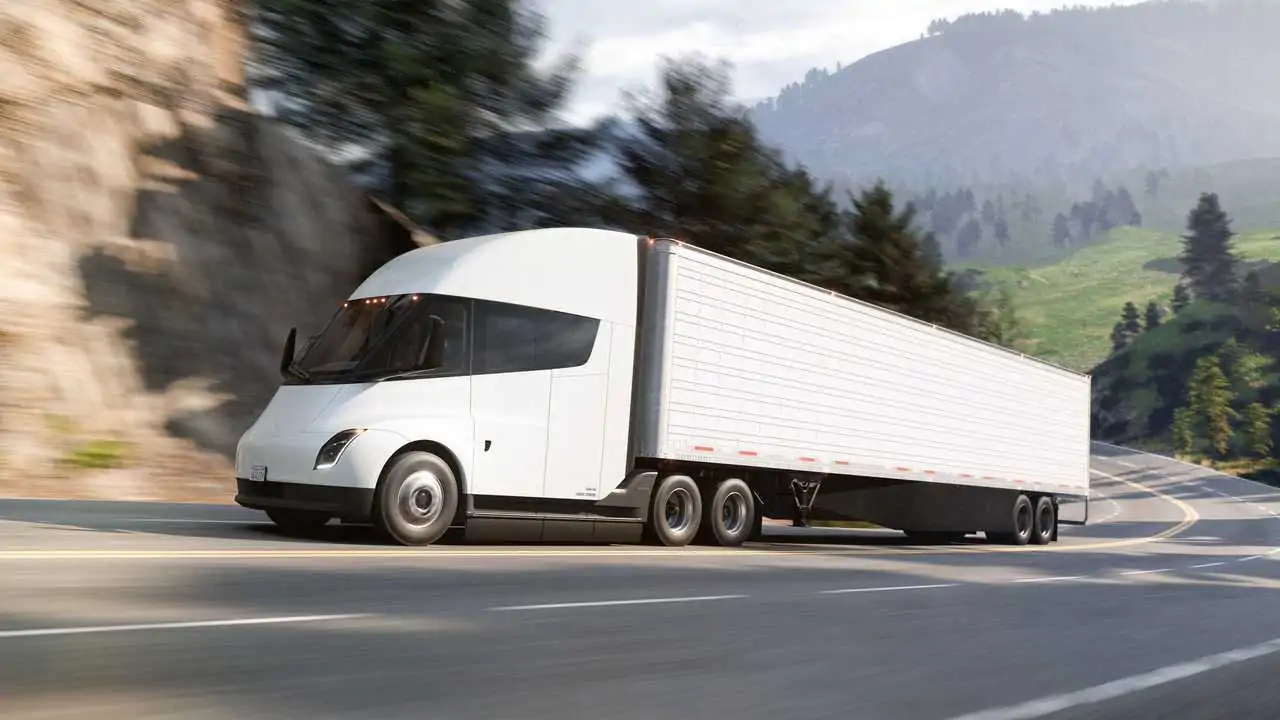
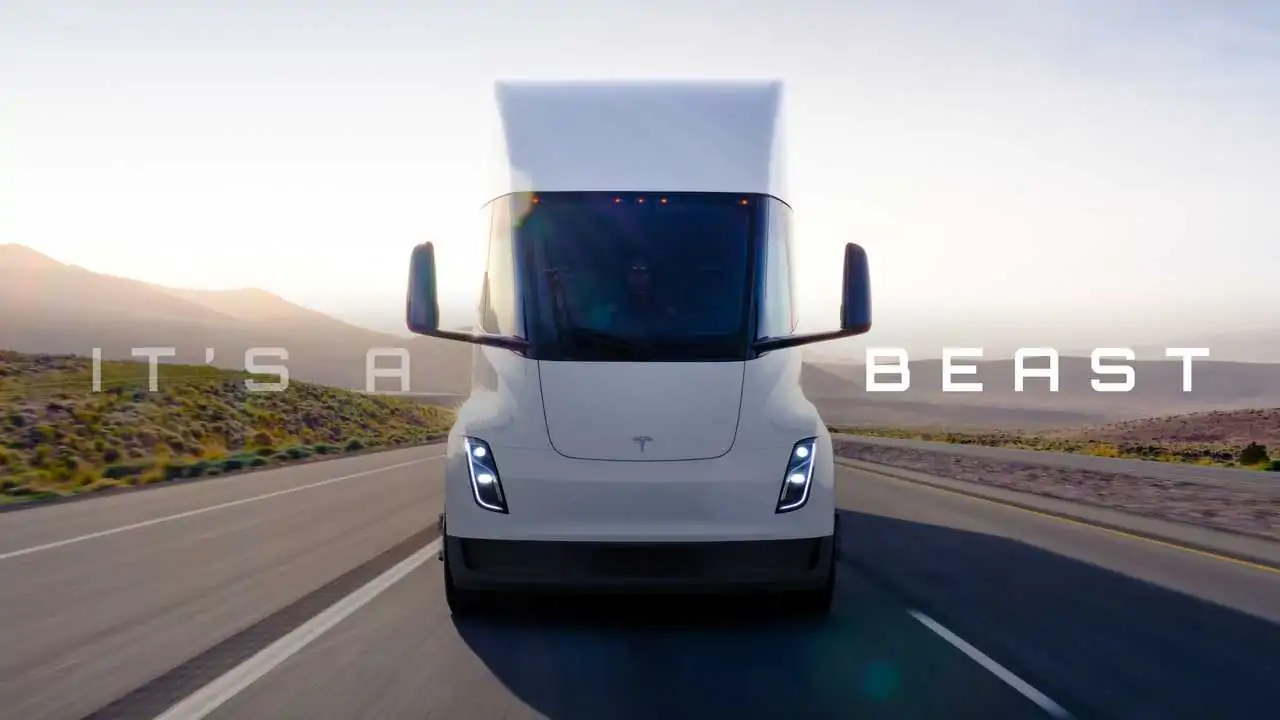
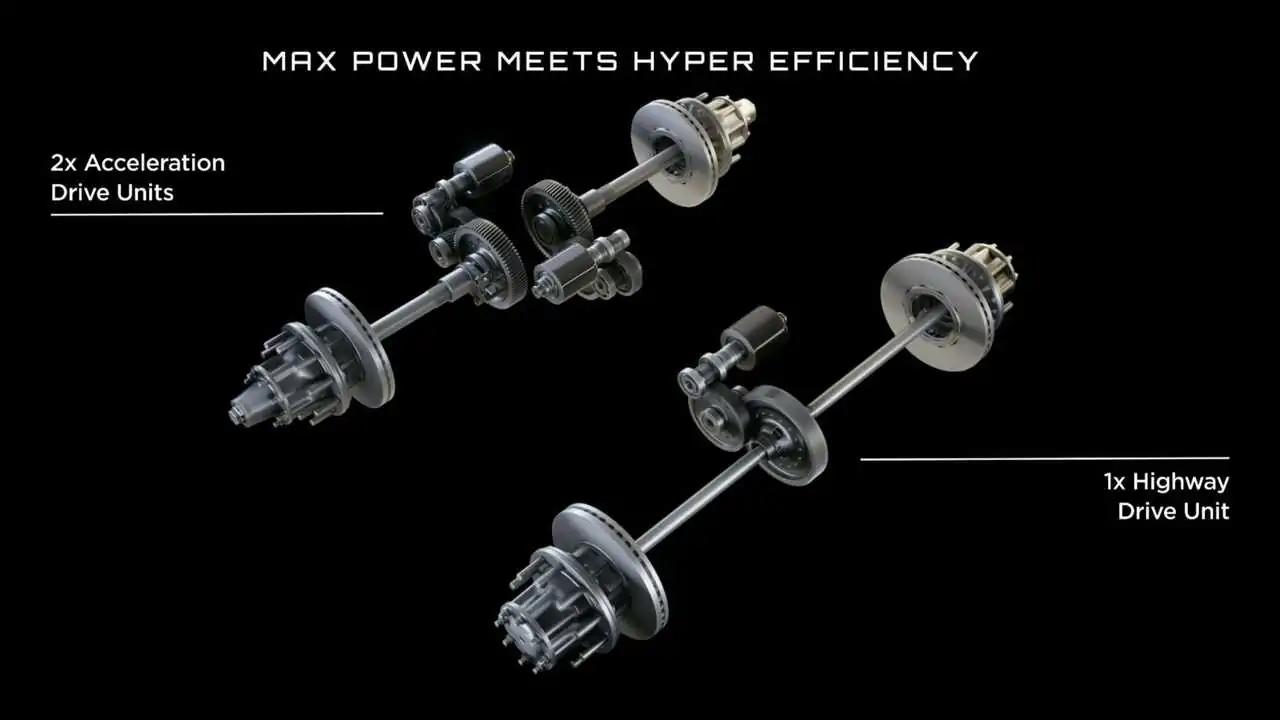
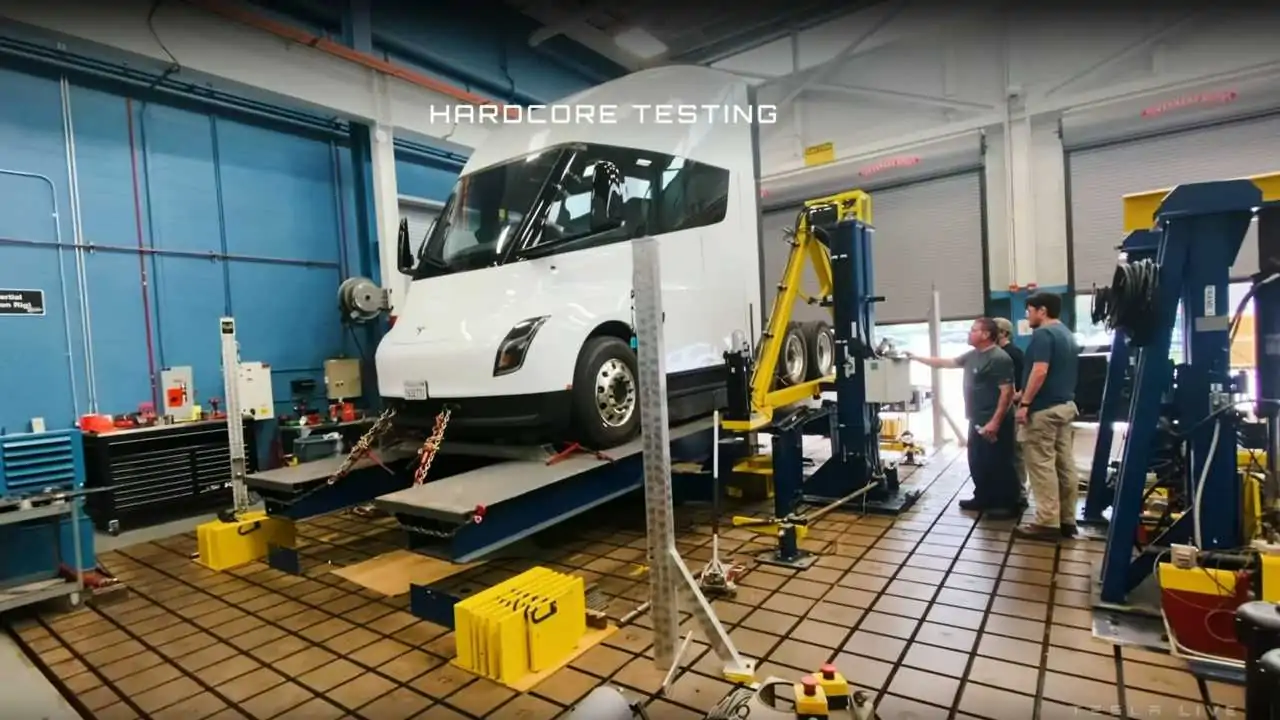
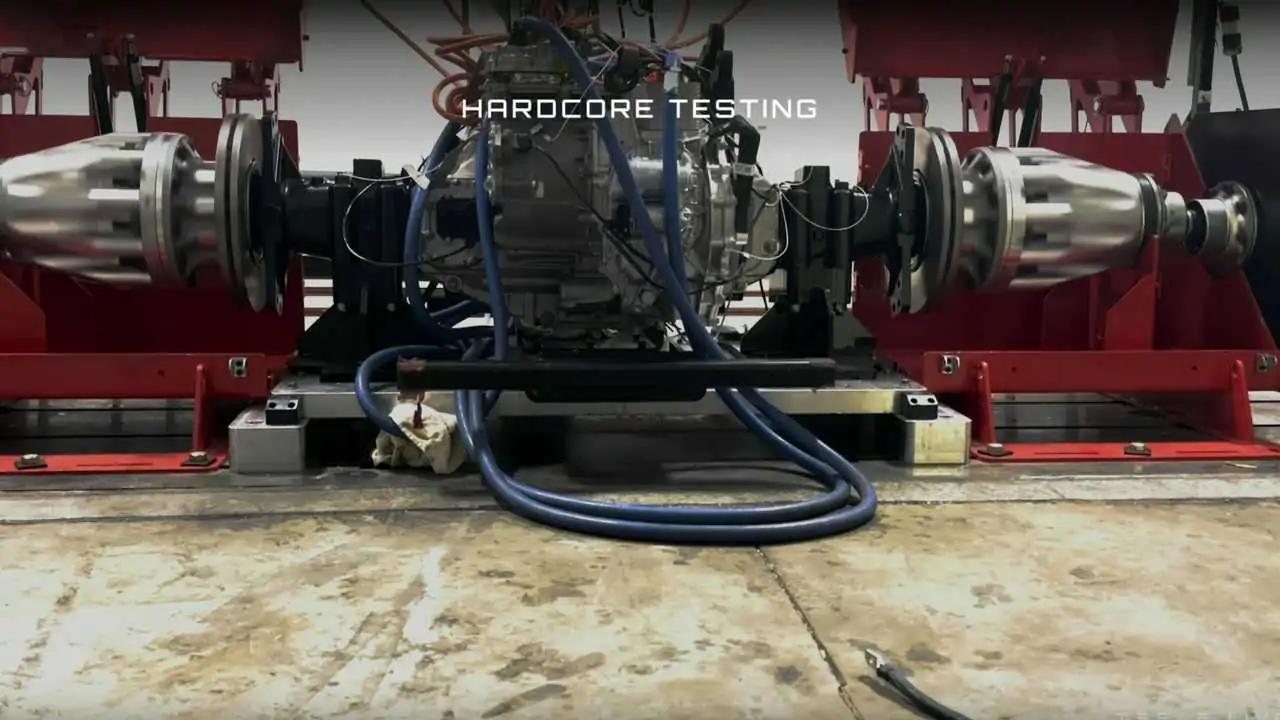
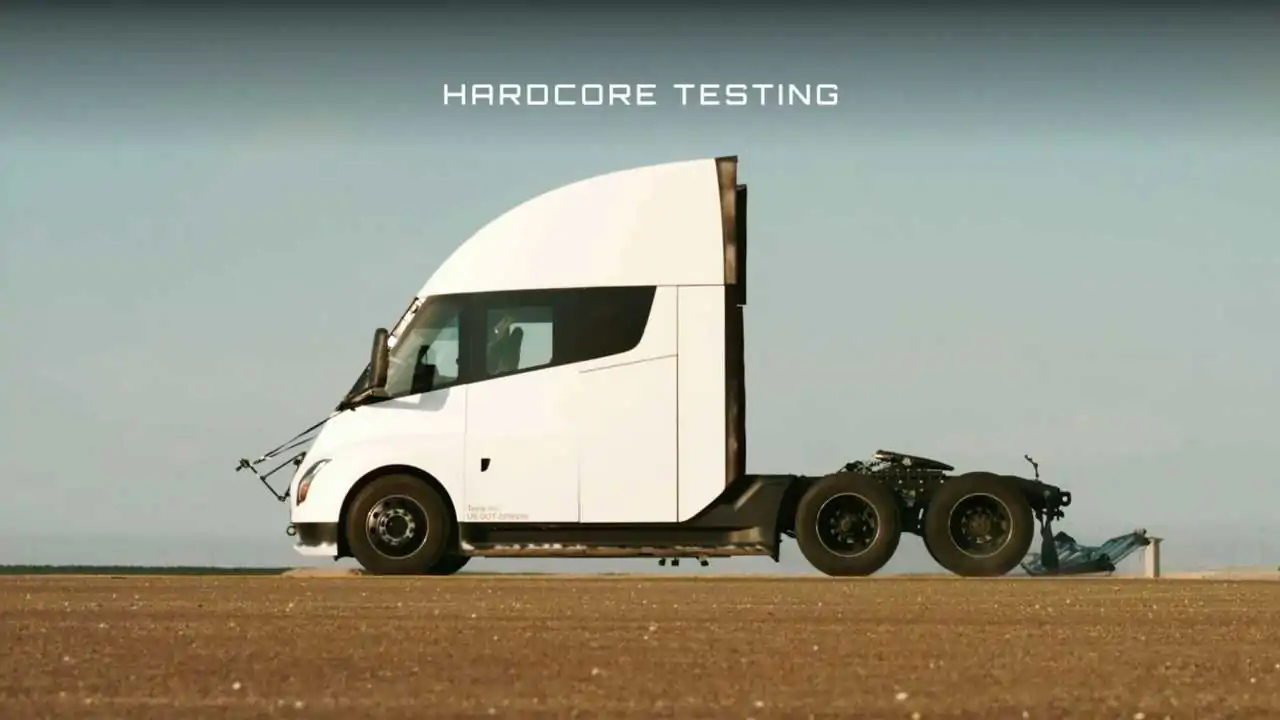
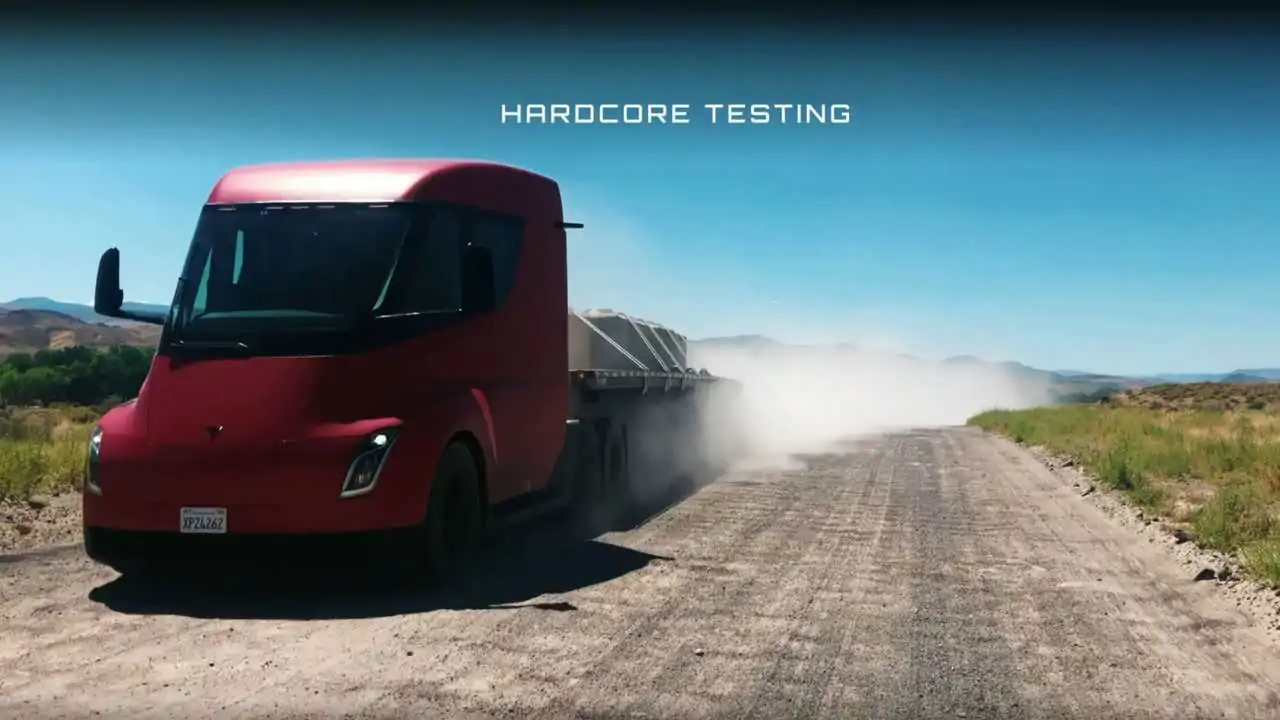
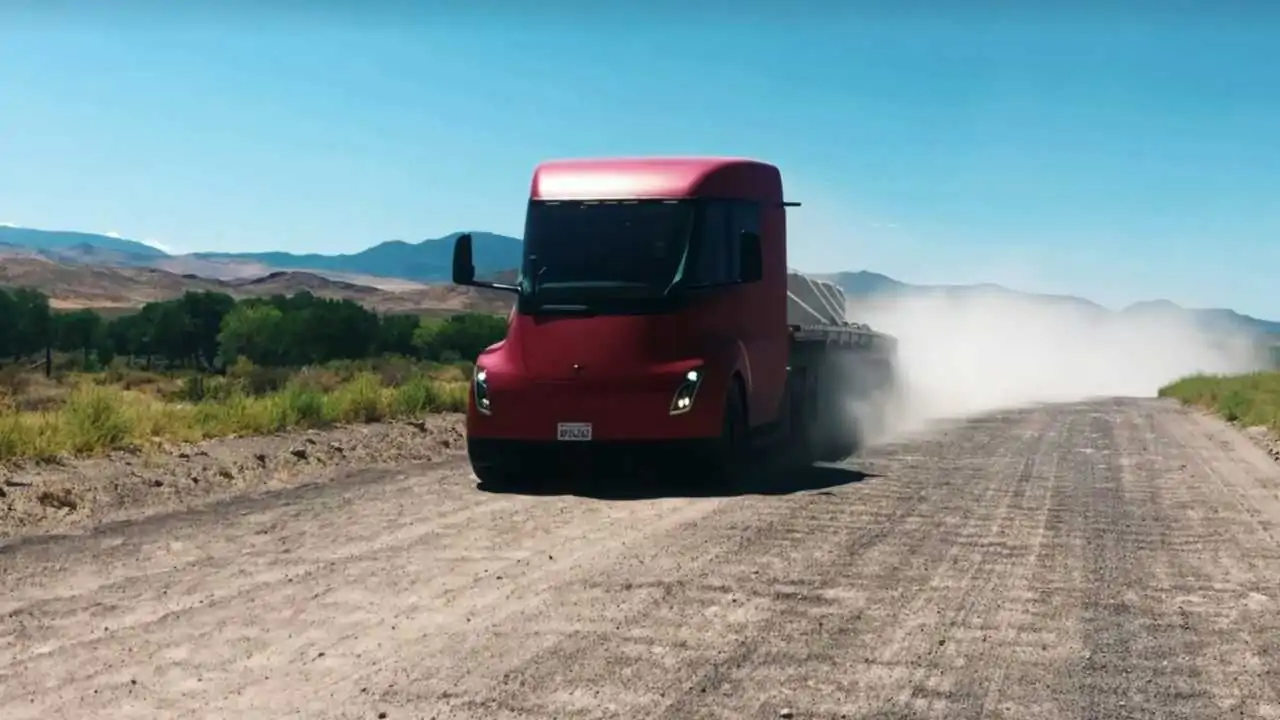
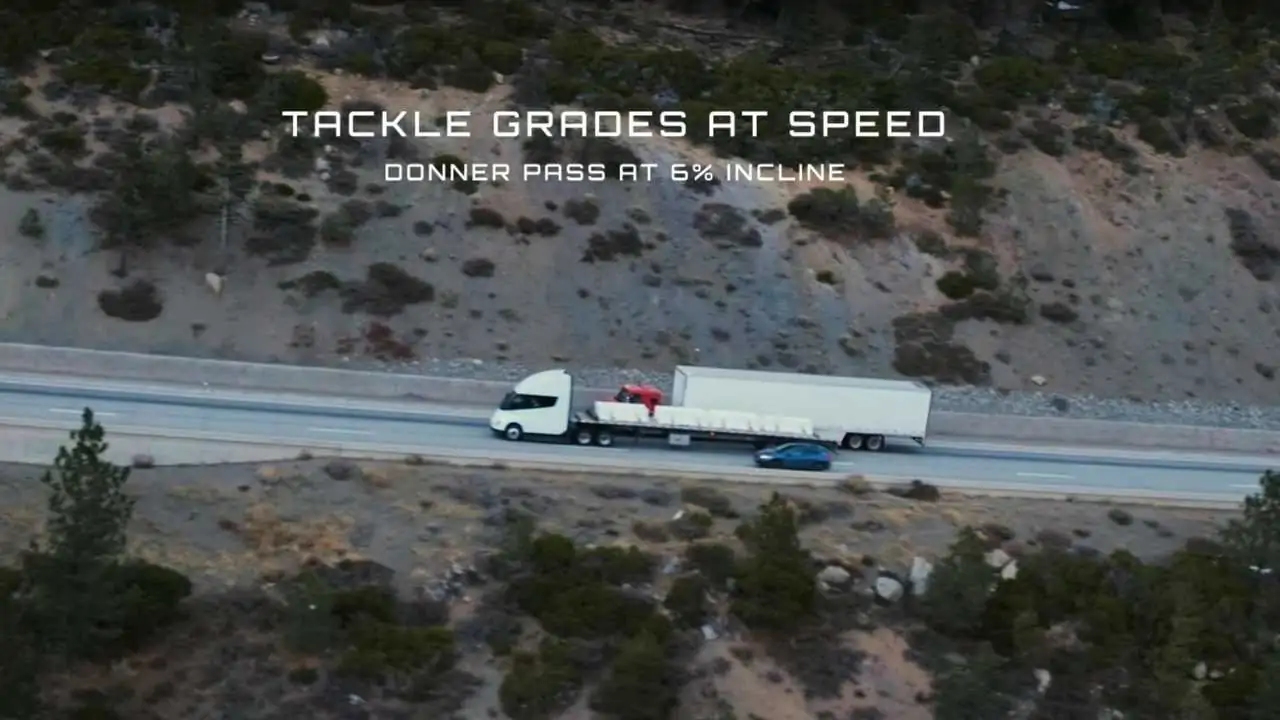
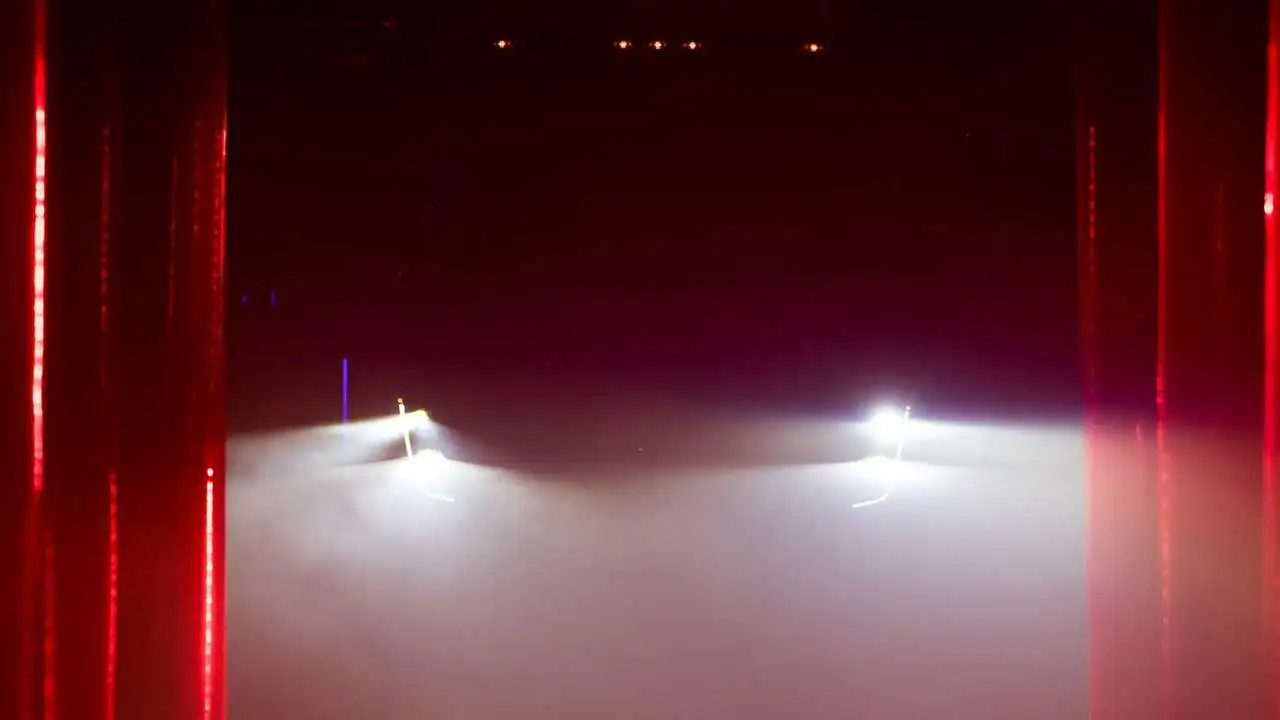
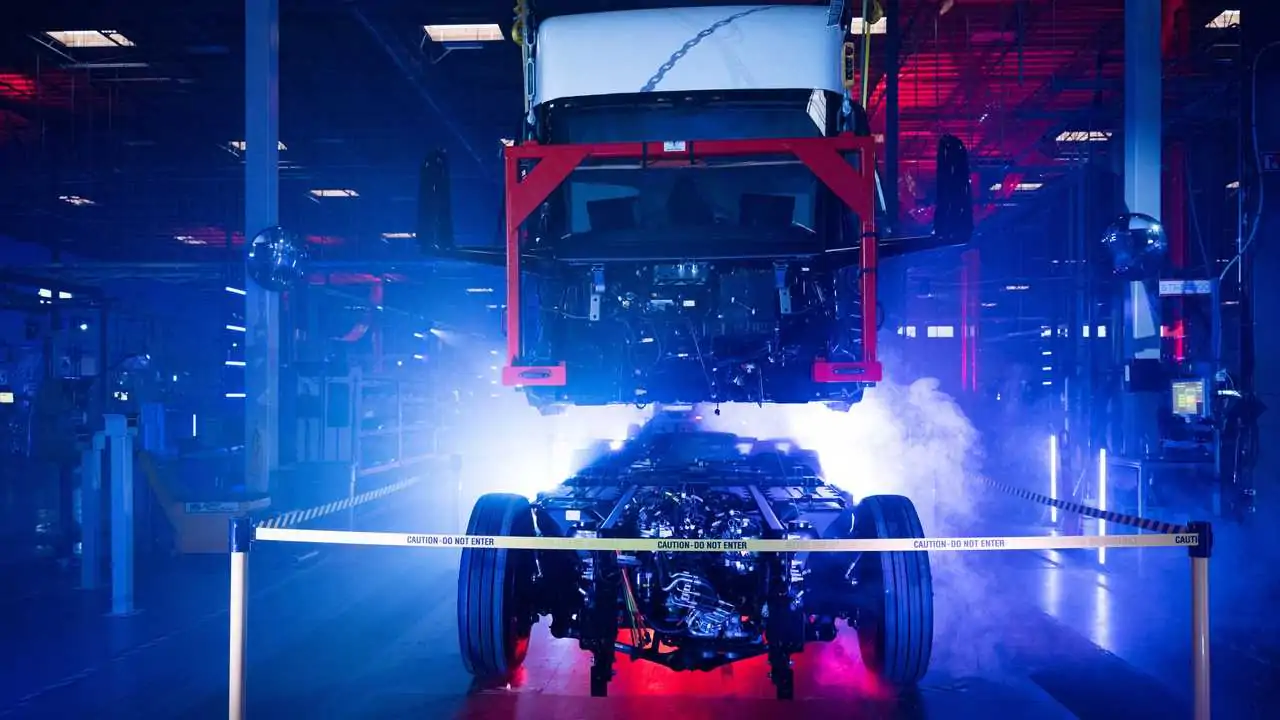
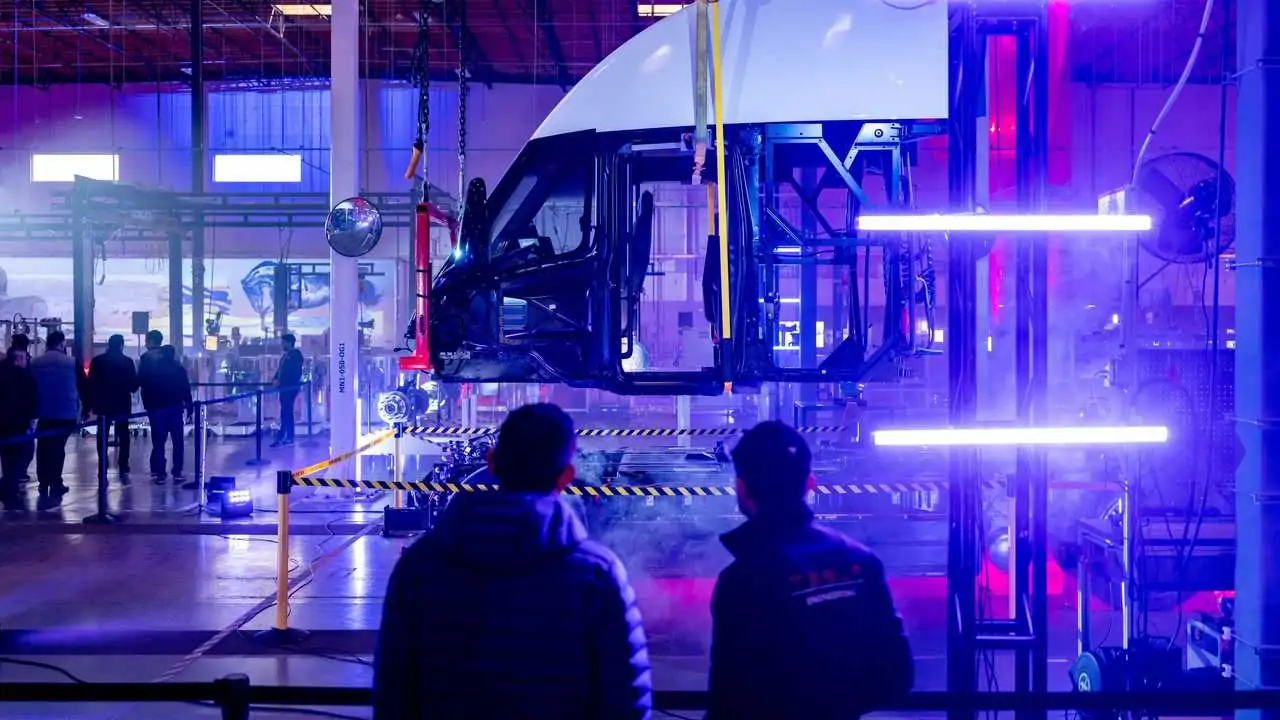
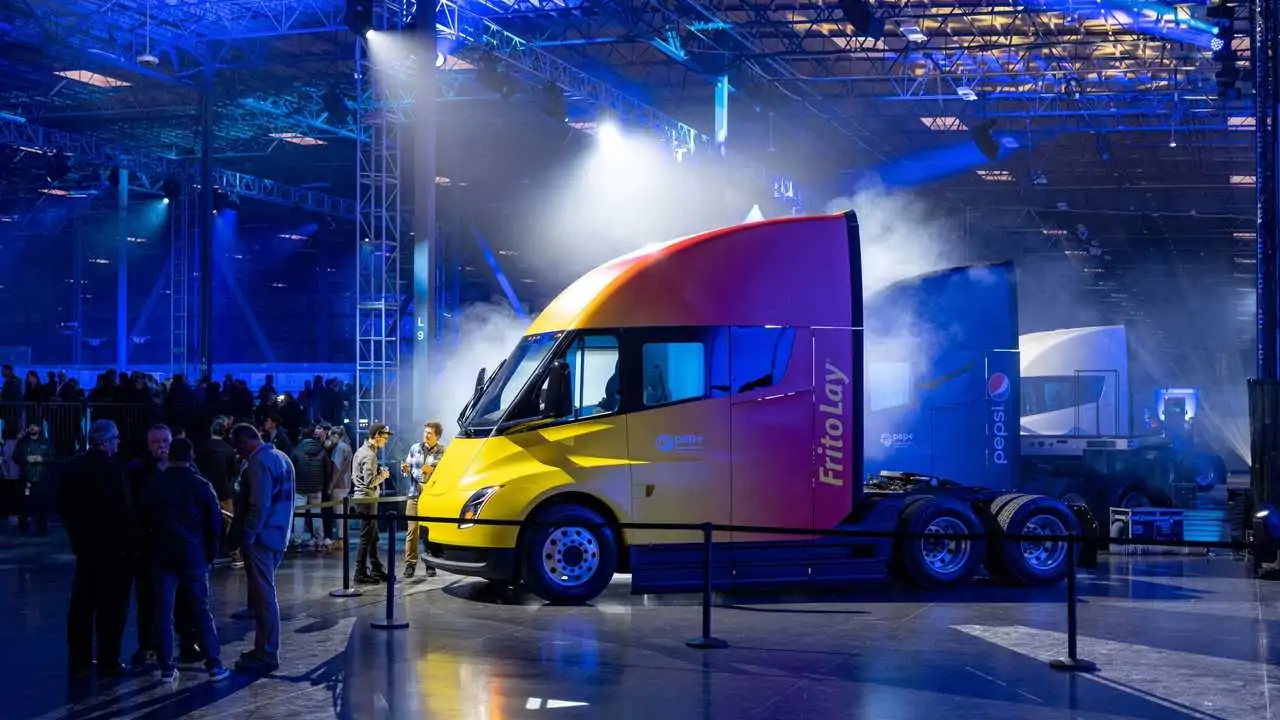
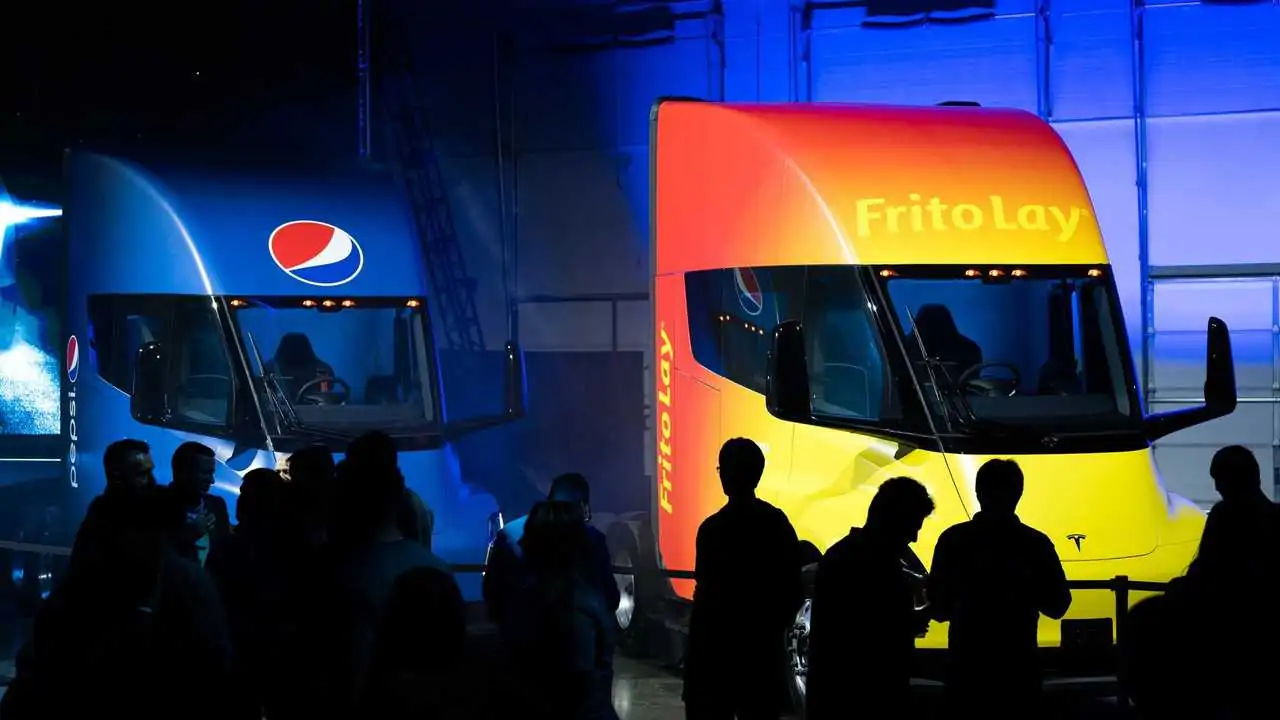
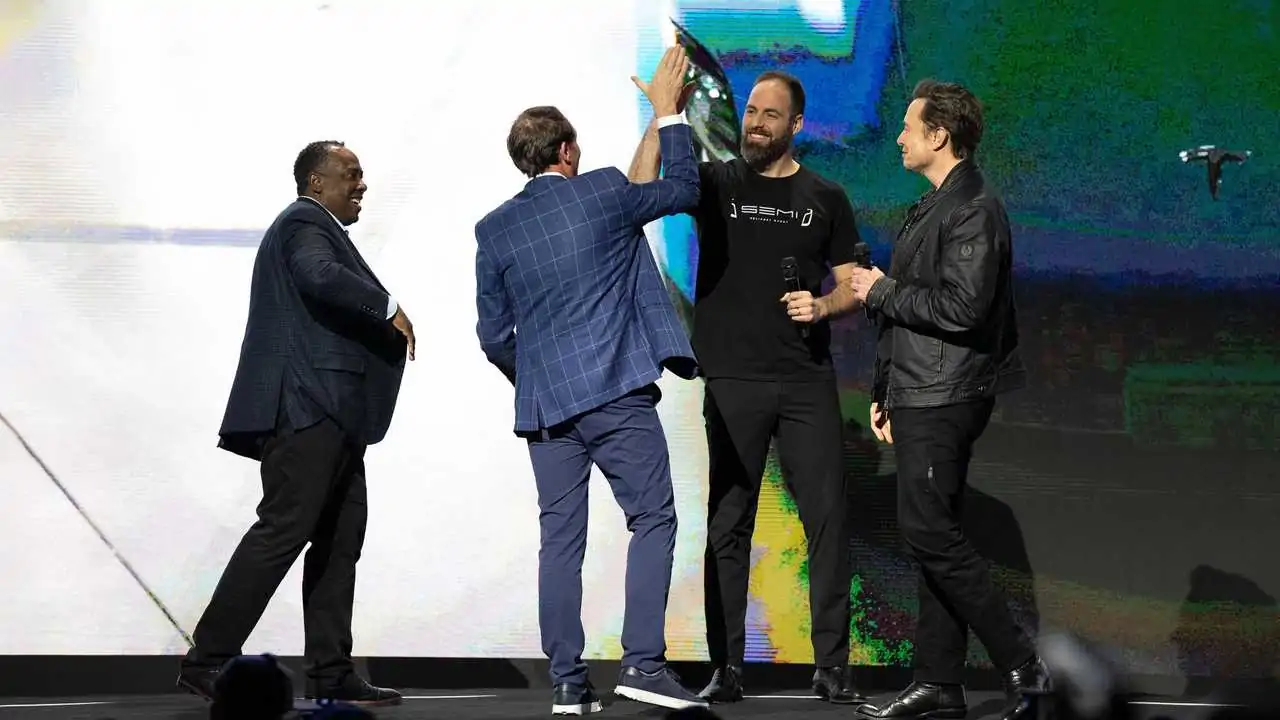
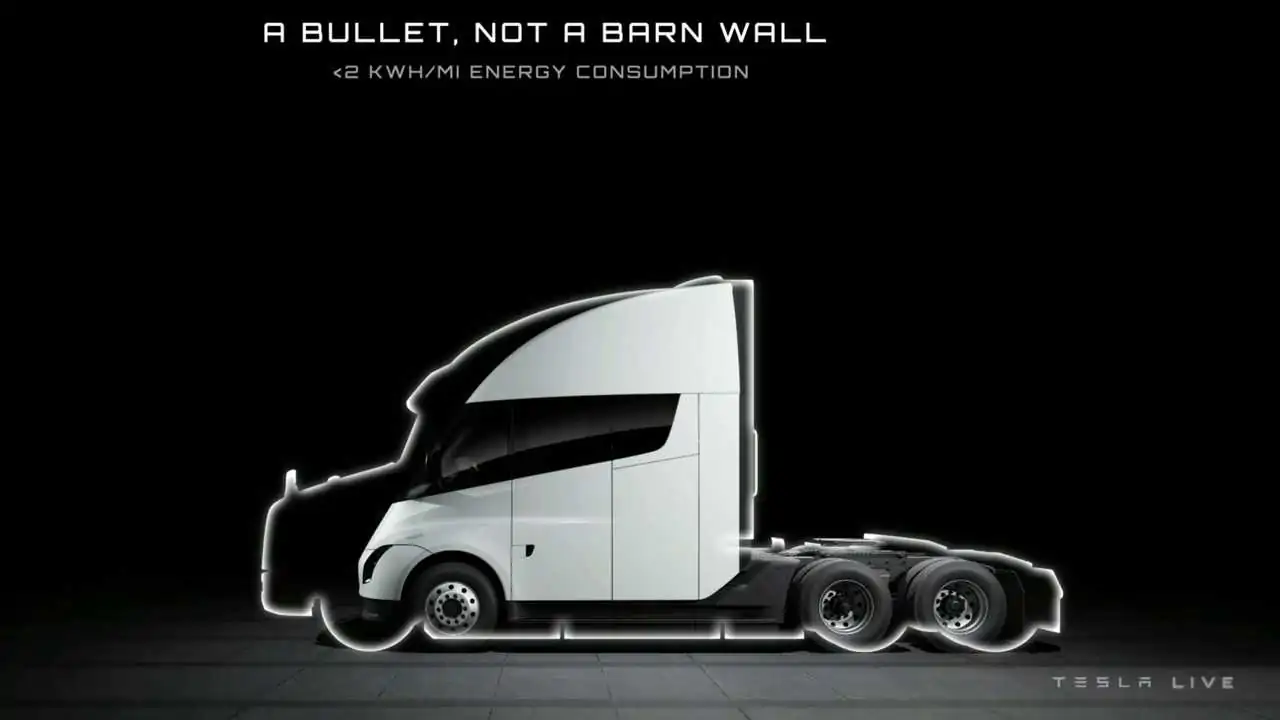
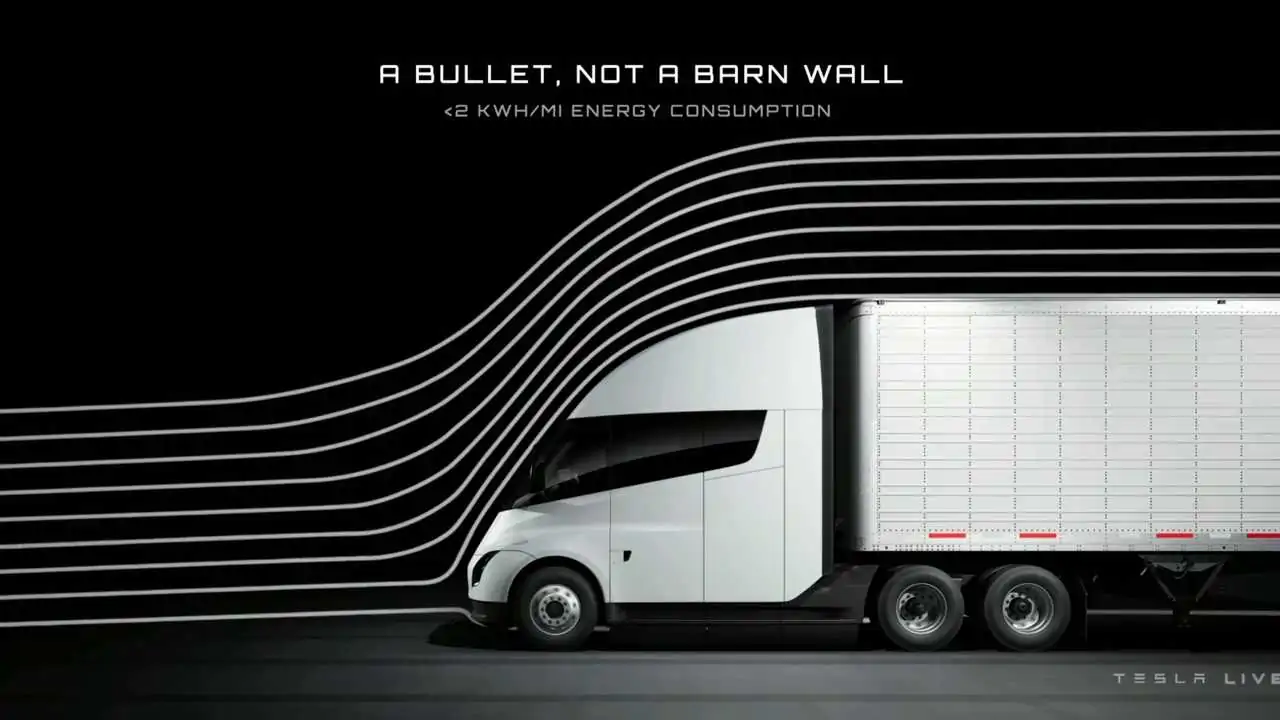
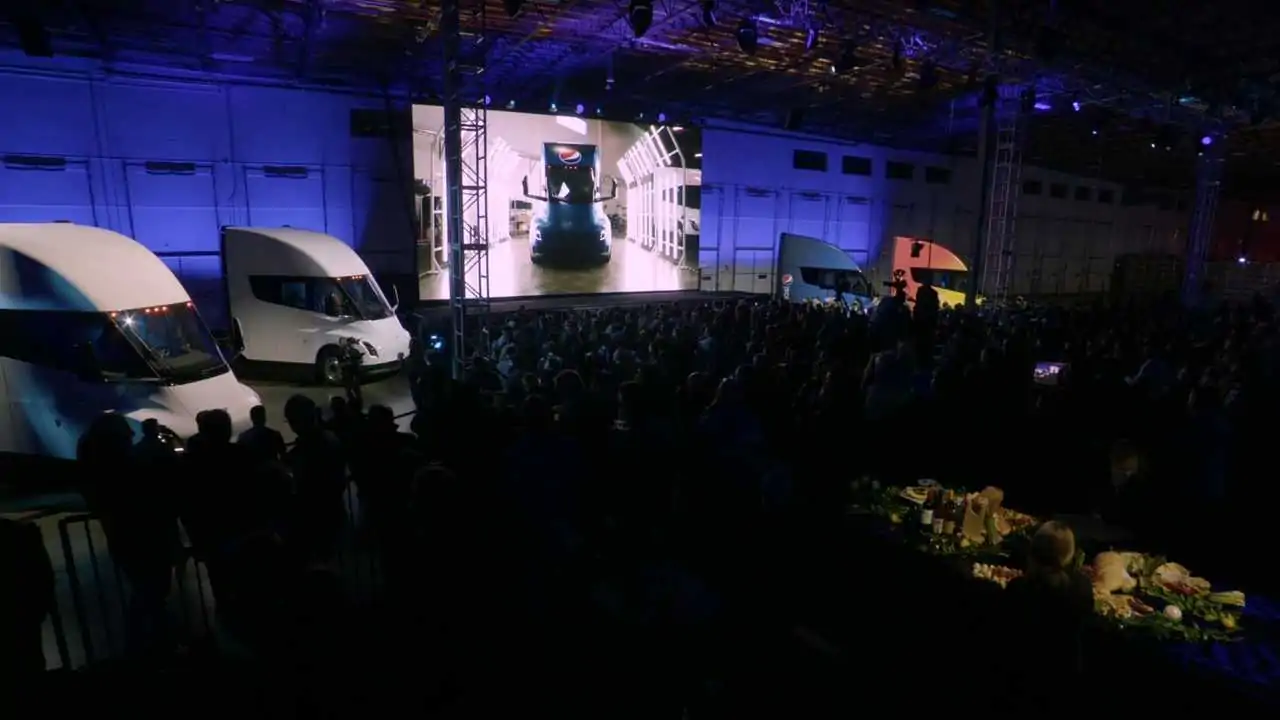
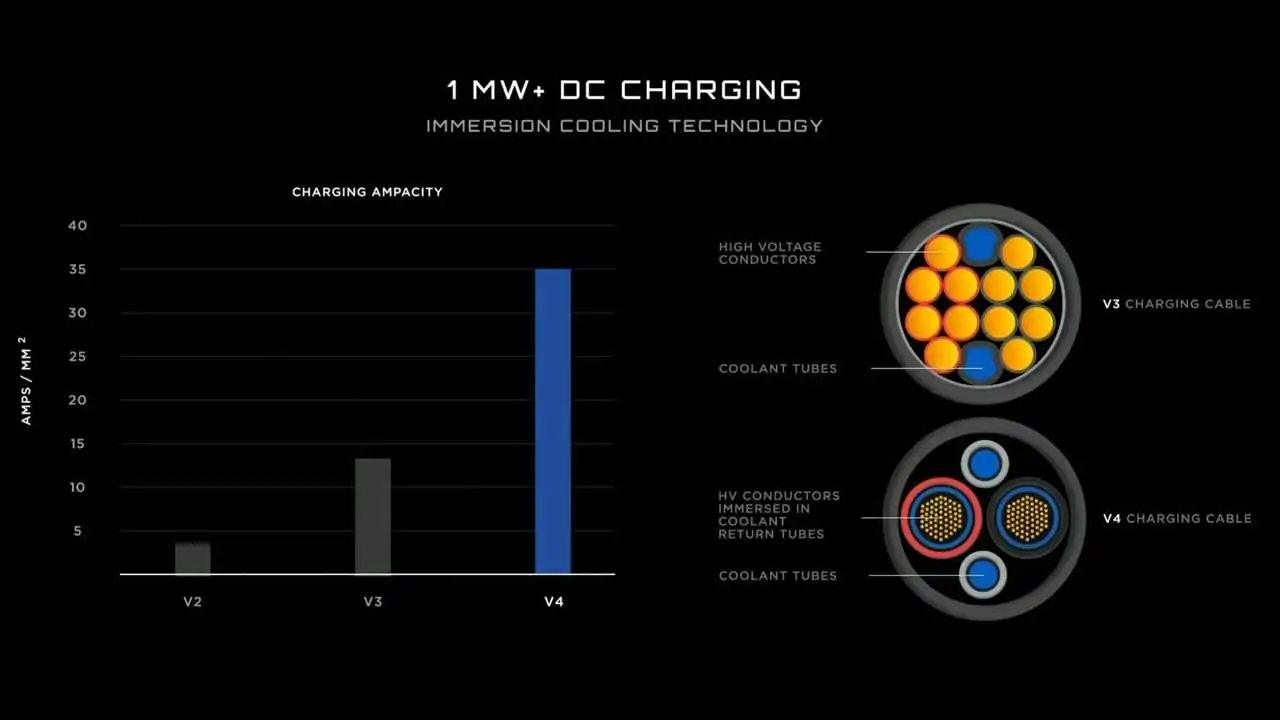
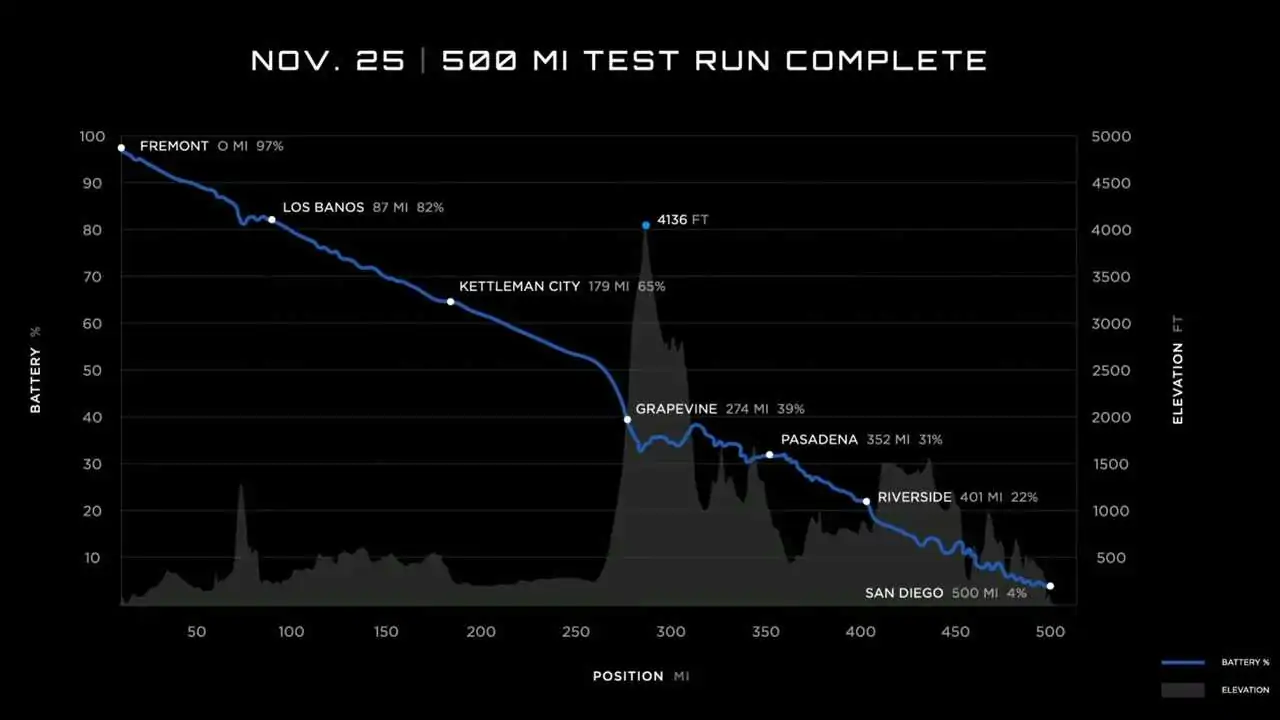
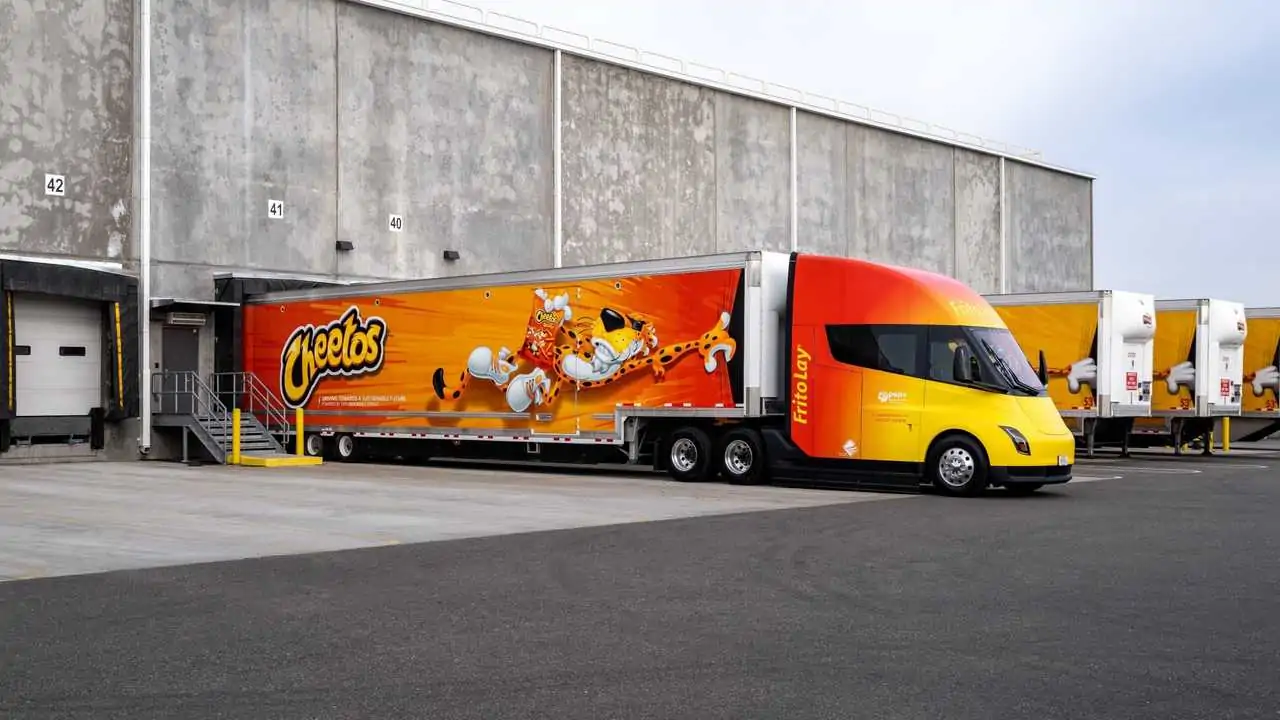
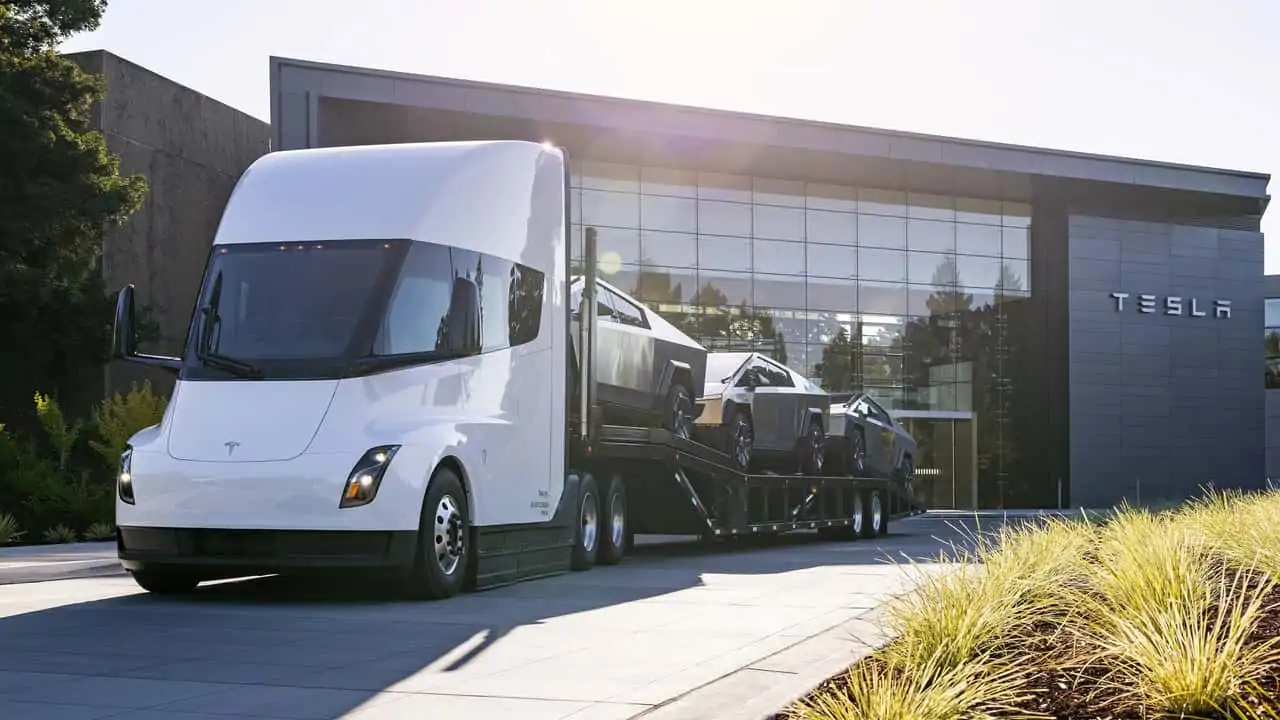
For the companies that ordered the electric Semi hoping to reduce their carbon footprint, the lack of deliveries from Tesla forced them to turn to other truck makers, even though the efficiency and driving range are below what the Semi is capable of.
The Freightliner eCascadia, made by Daimler Truck, is the biggest competitor to the Tesla Semi. UPS, Walmart Canada, Sysco and Schneider National have dozens of eCascadia rigs on the road, with Schneider alone using nearly 100 units to haul goods including PepsiCo’s Frito-Lay products.
Compared to the Semi’s approximate range of 500 miles, Freightliner’s eCascadia offers roughly half the driving distance on a full charge, but wider availability made it the truck of choice for over 55 companies, according to Daimler Truck North America.
